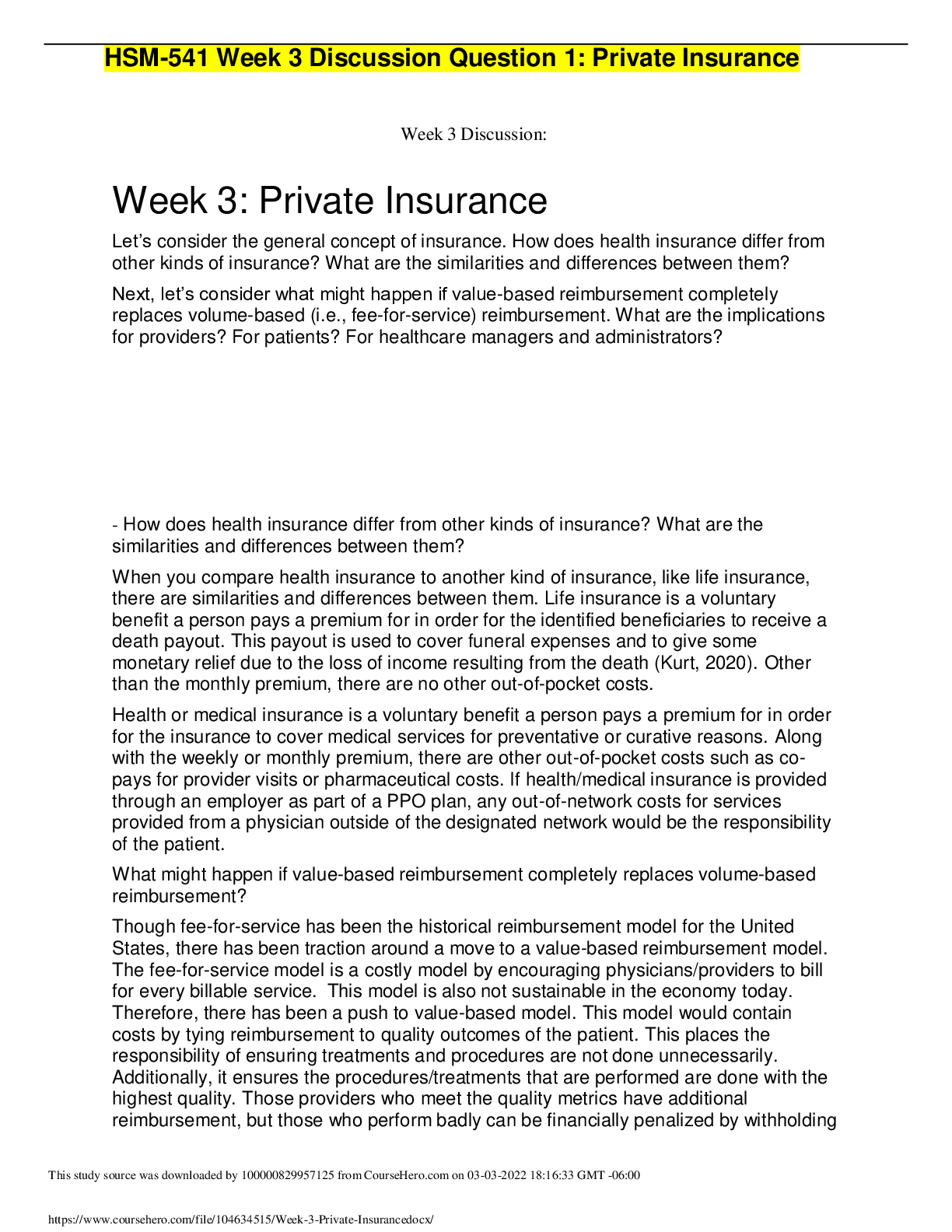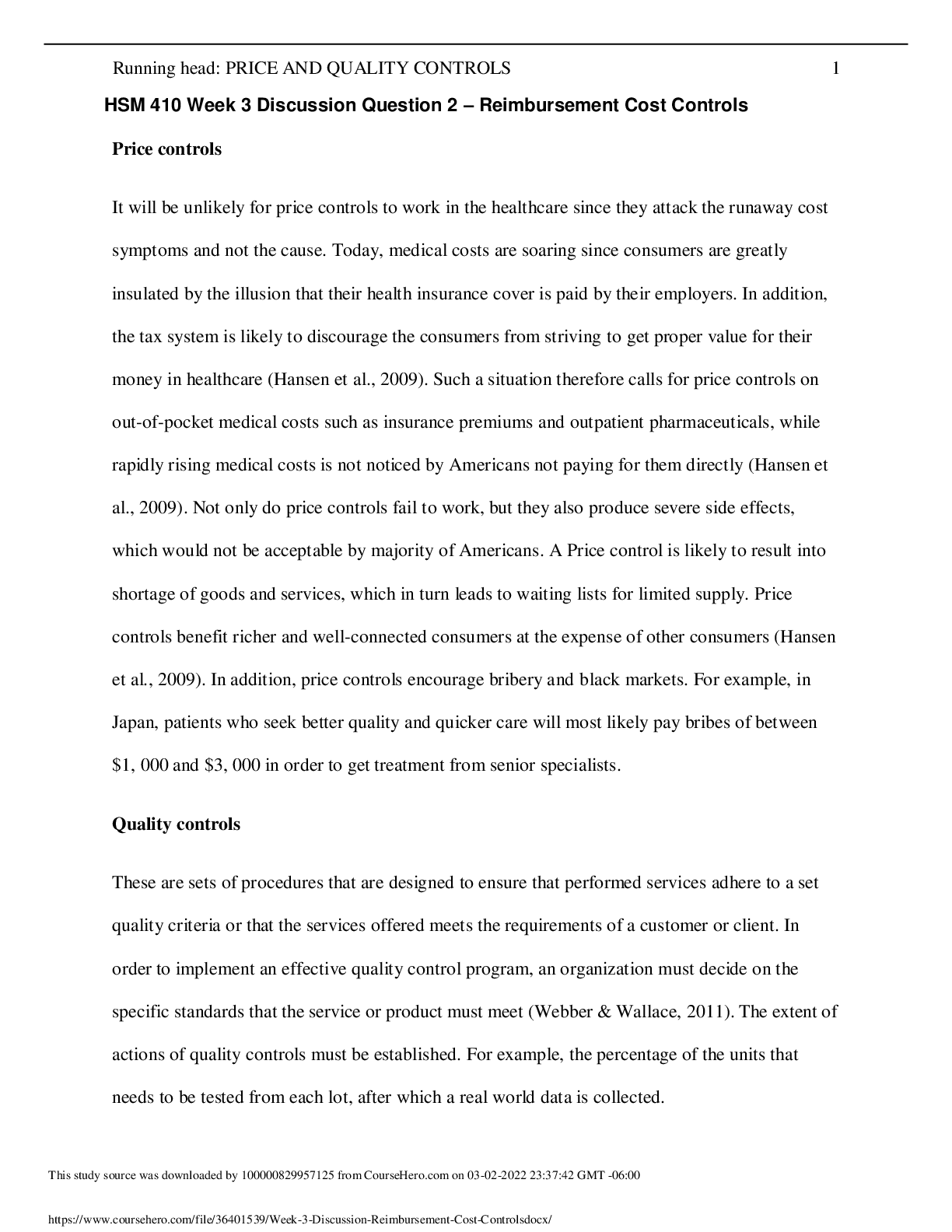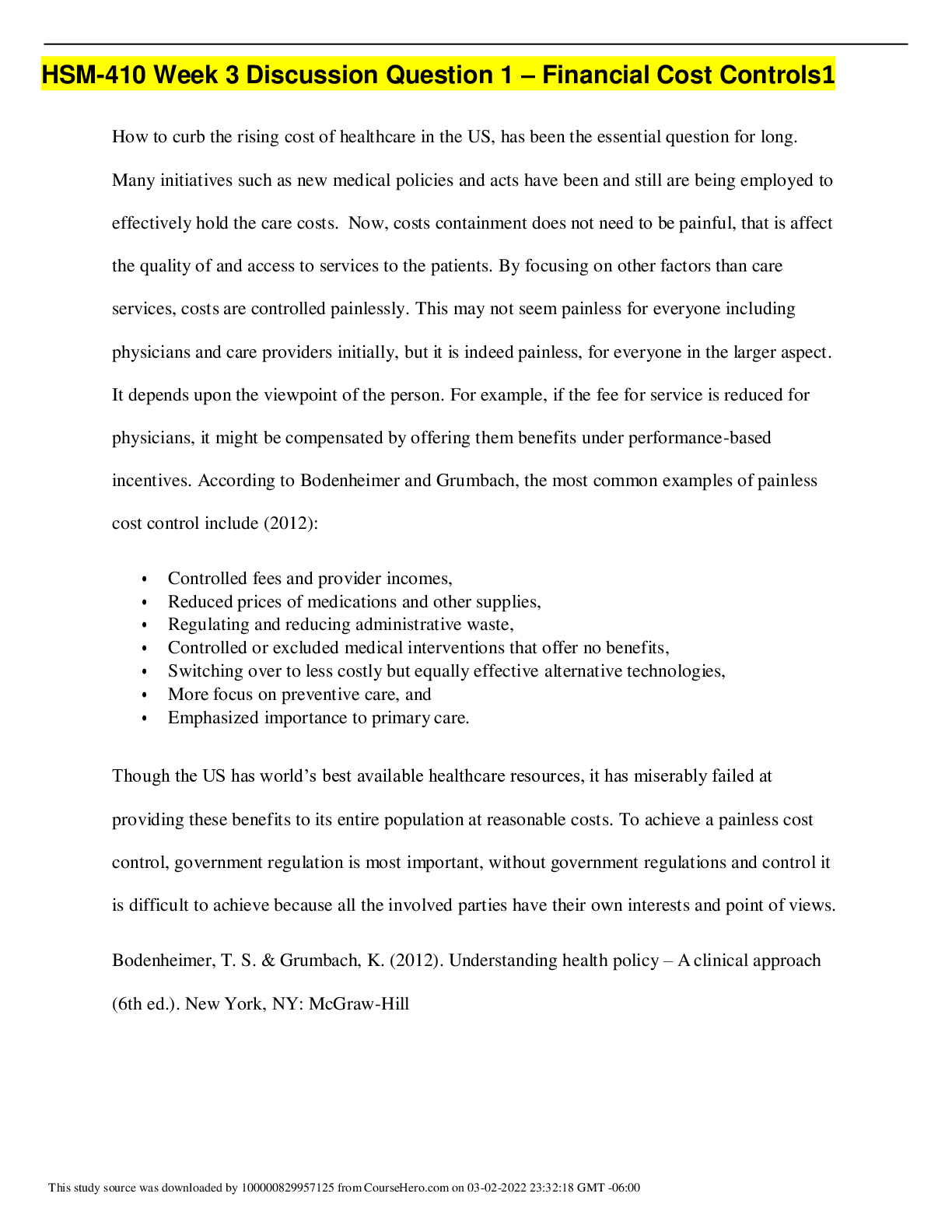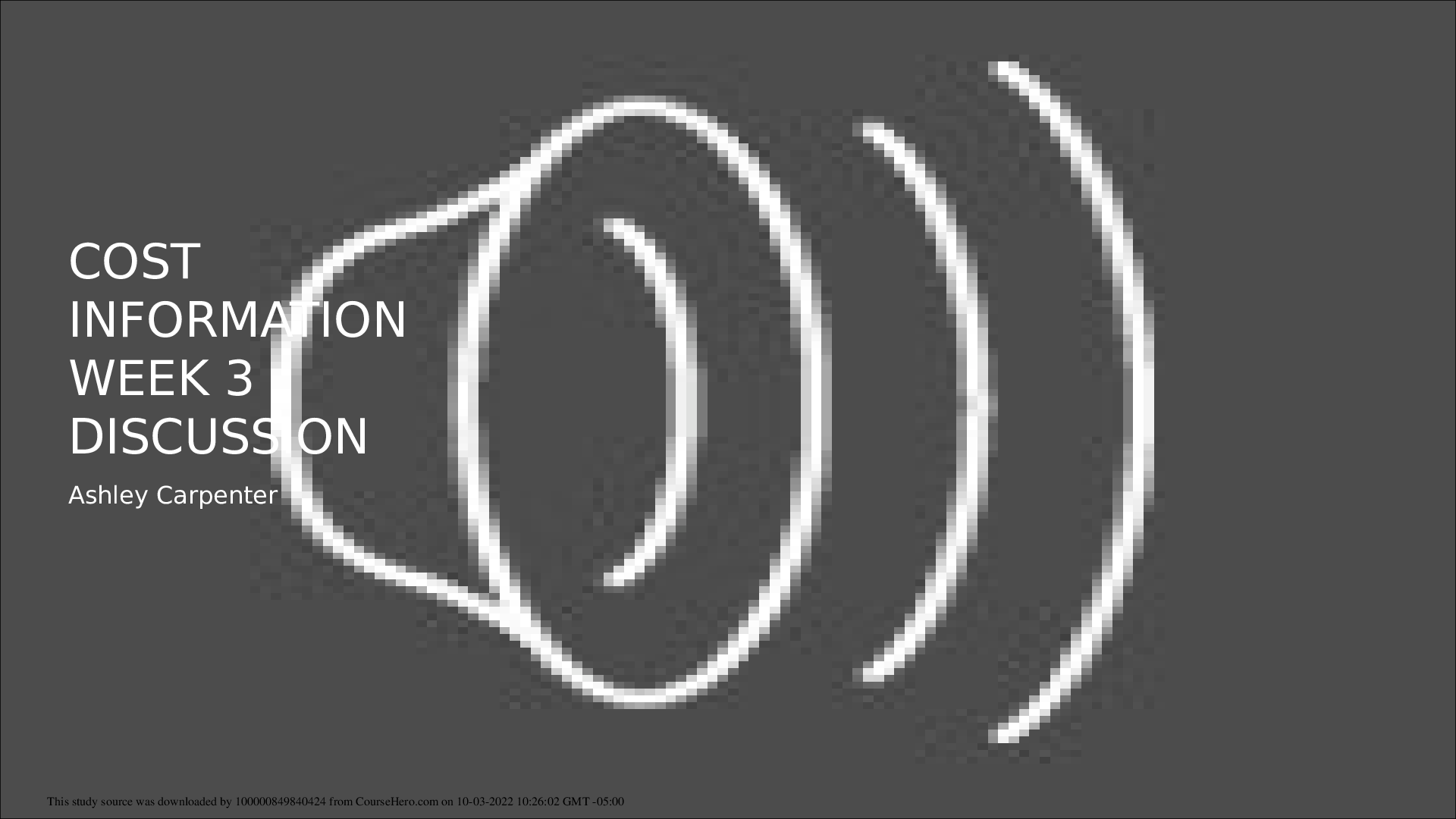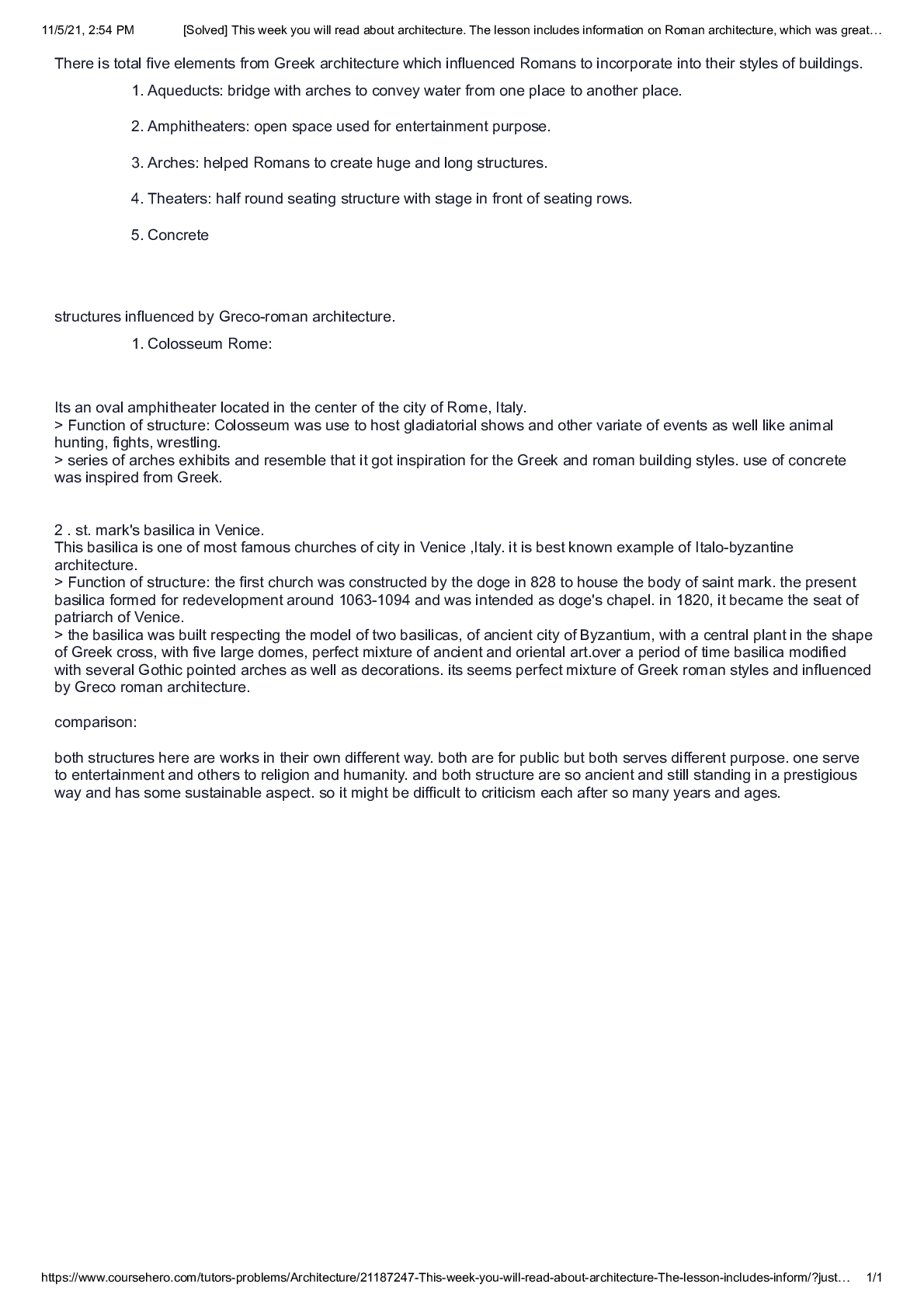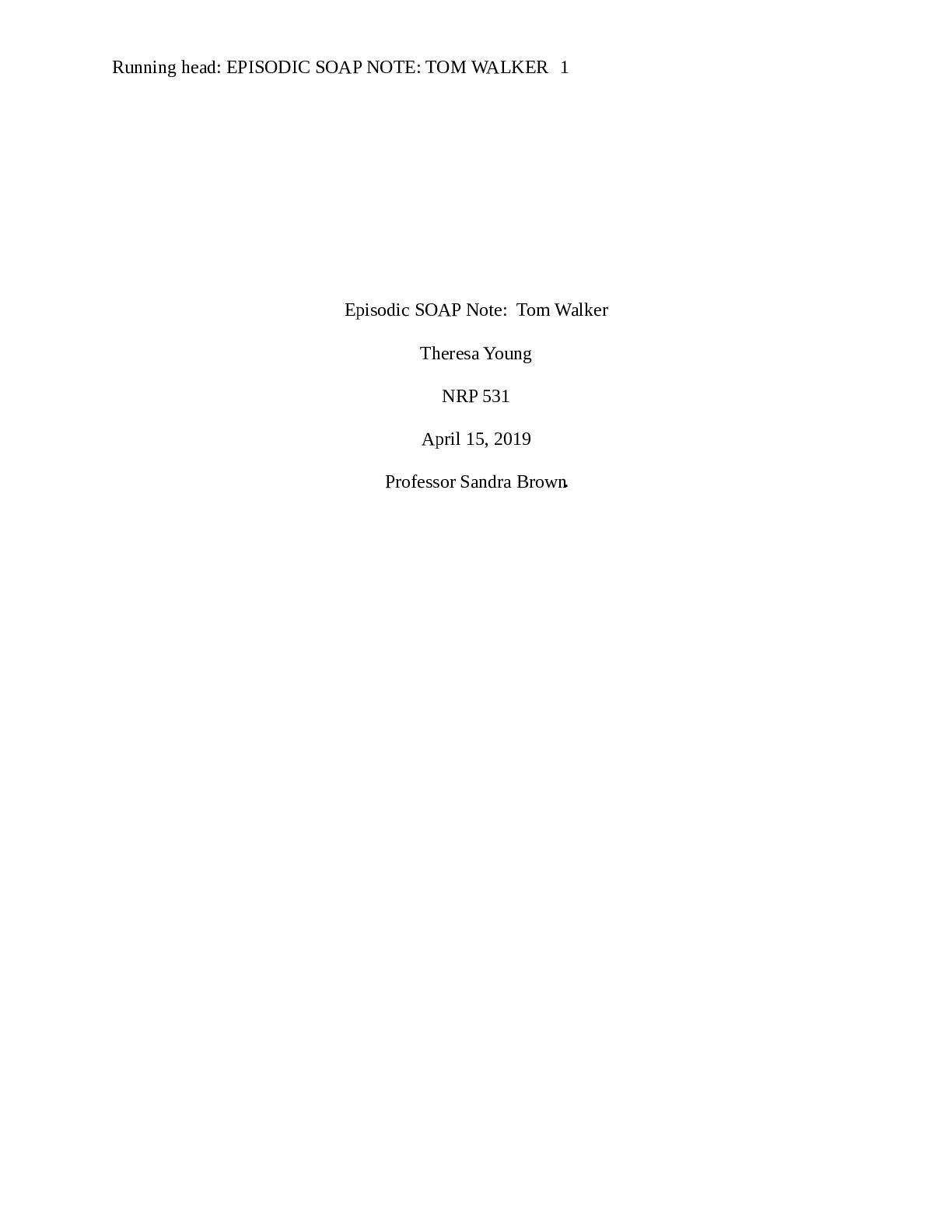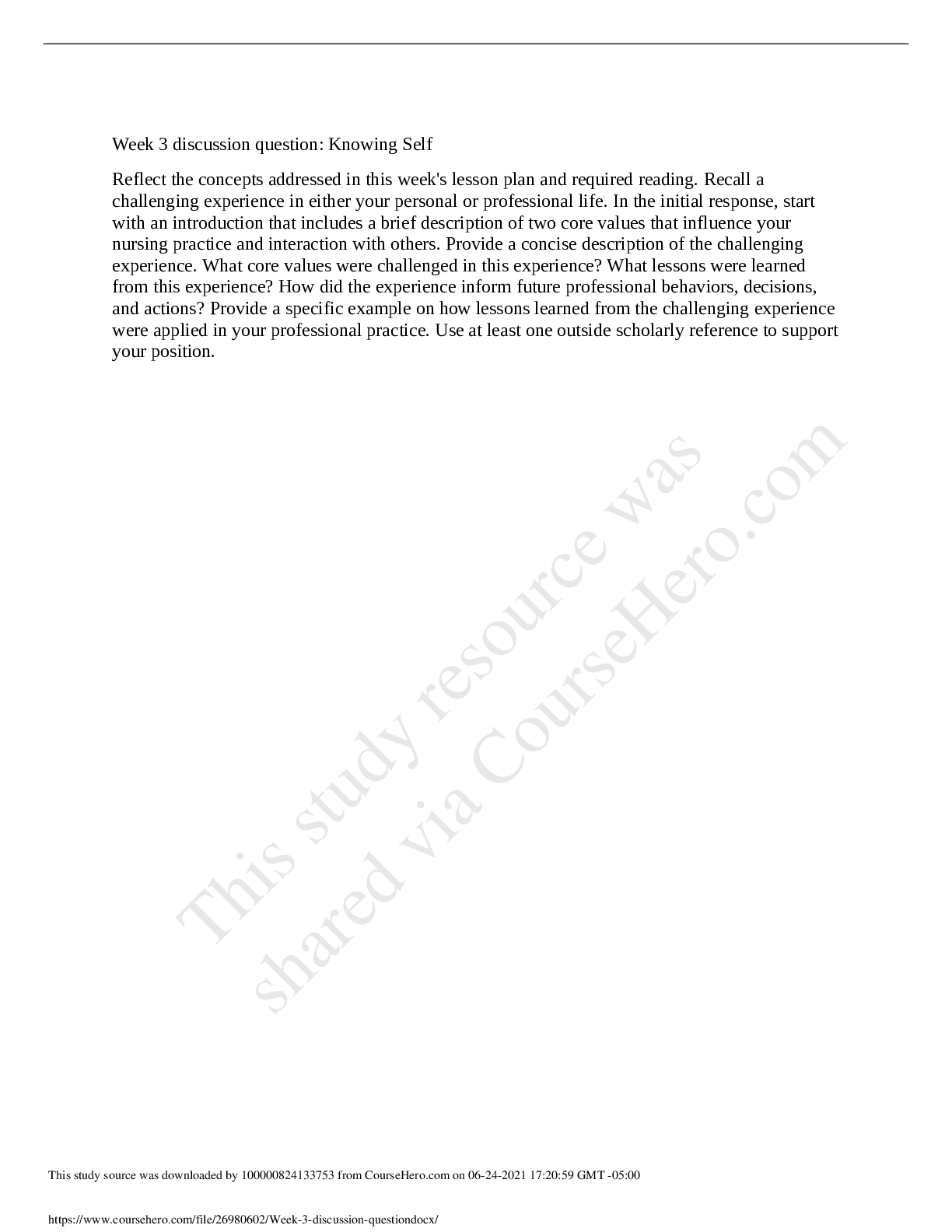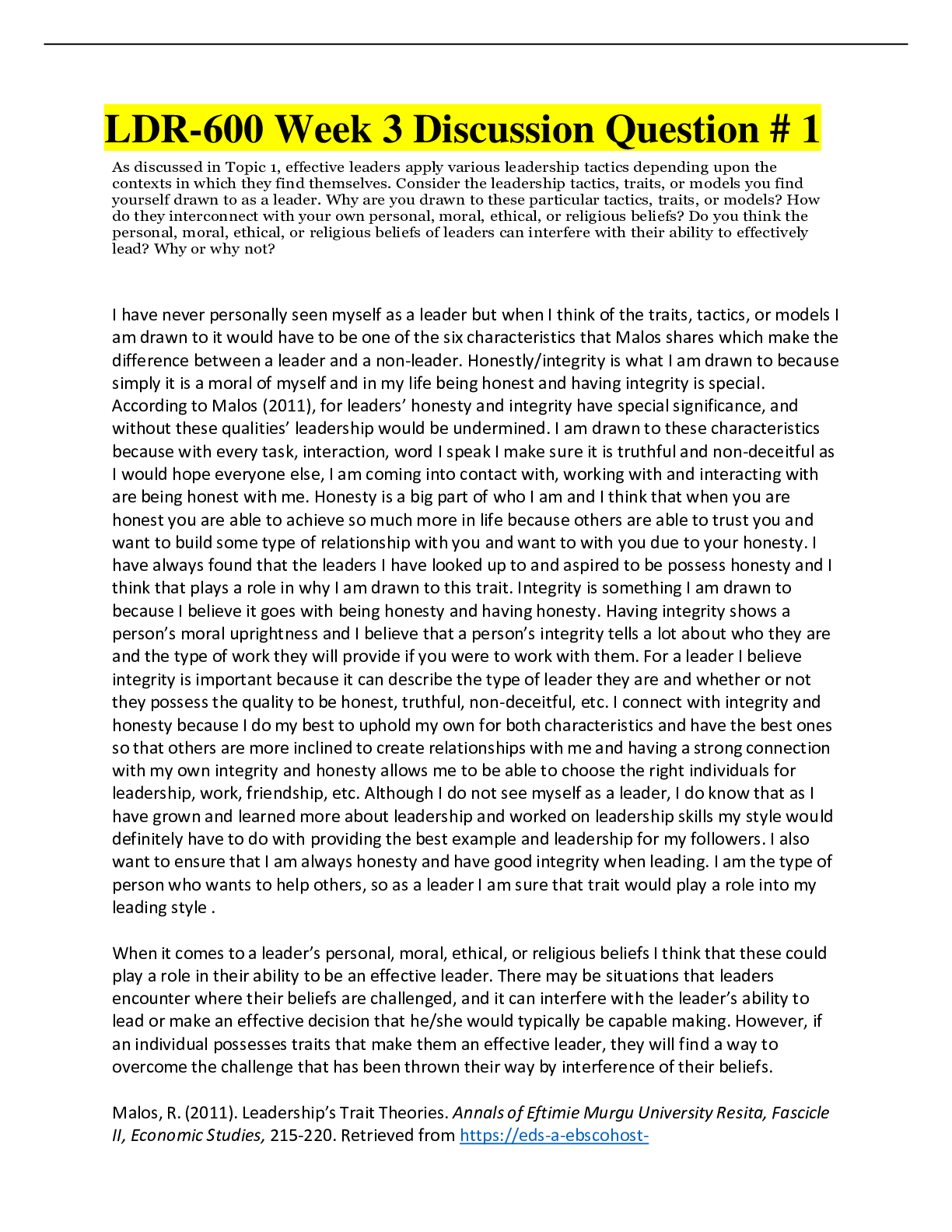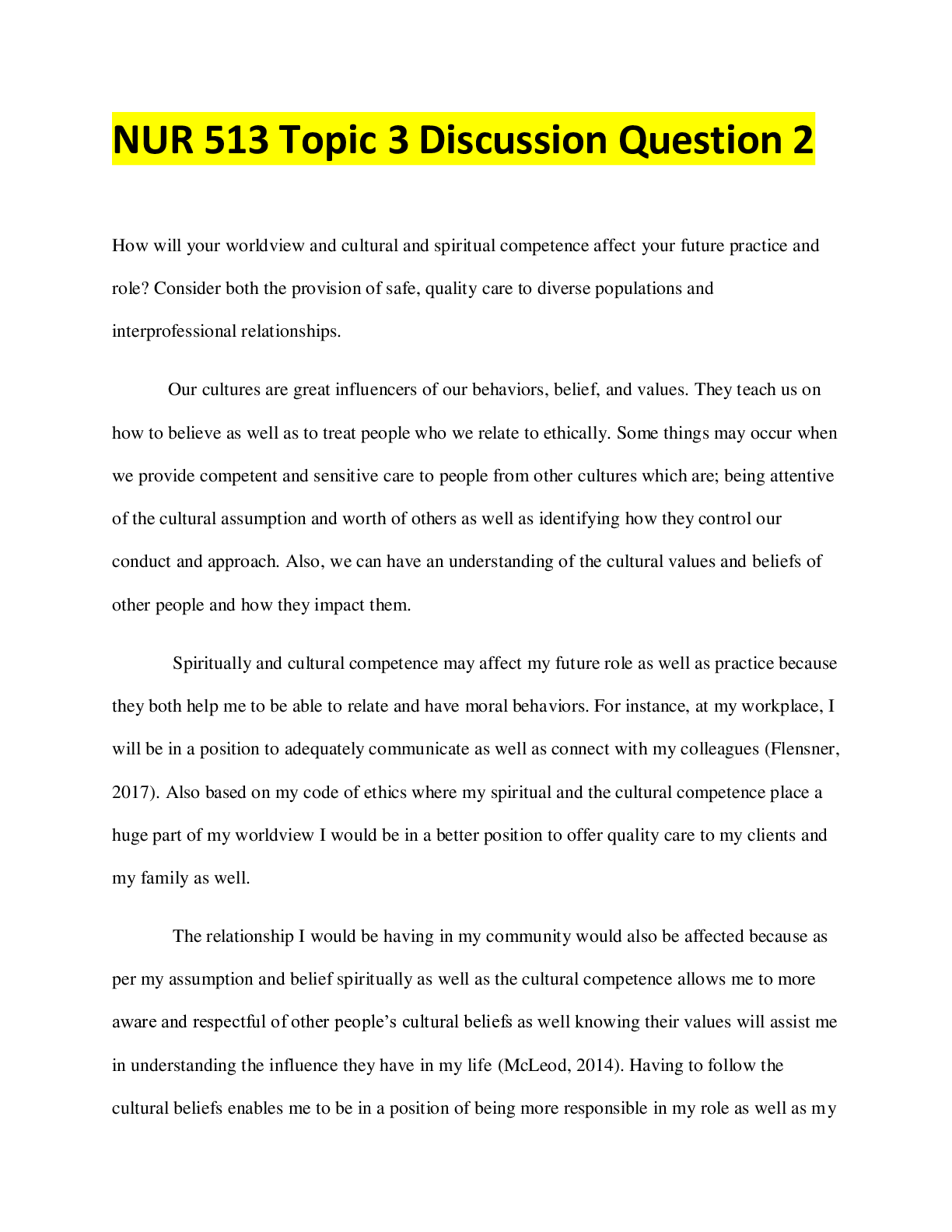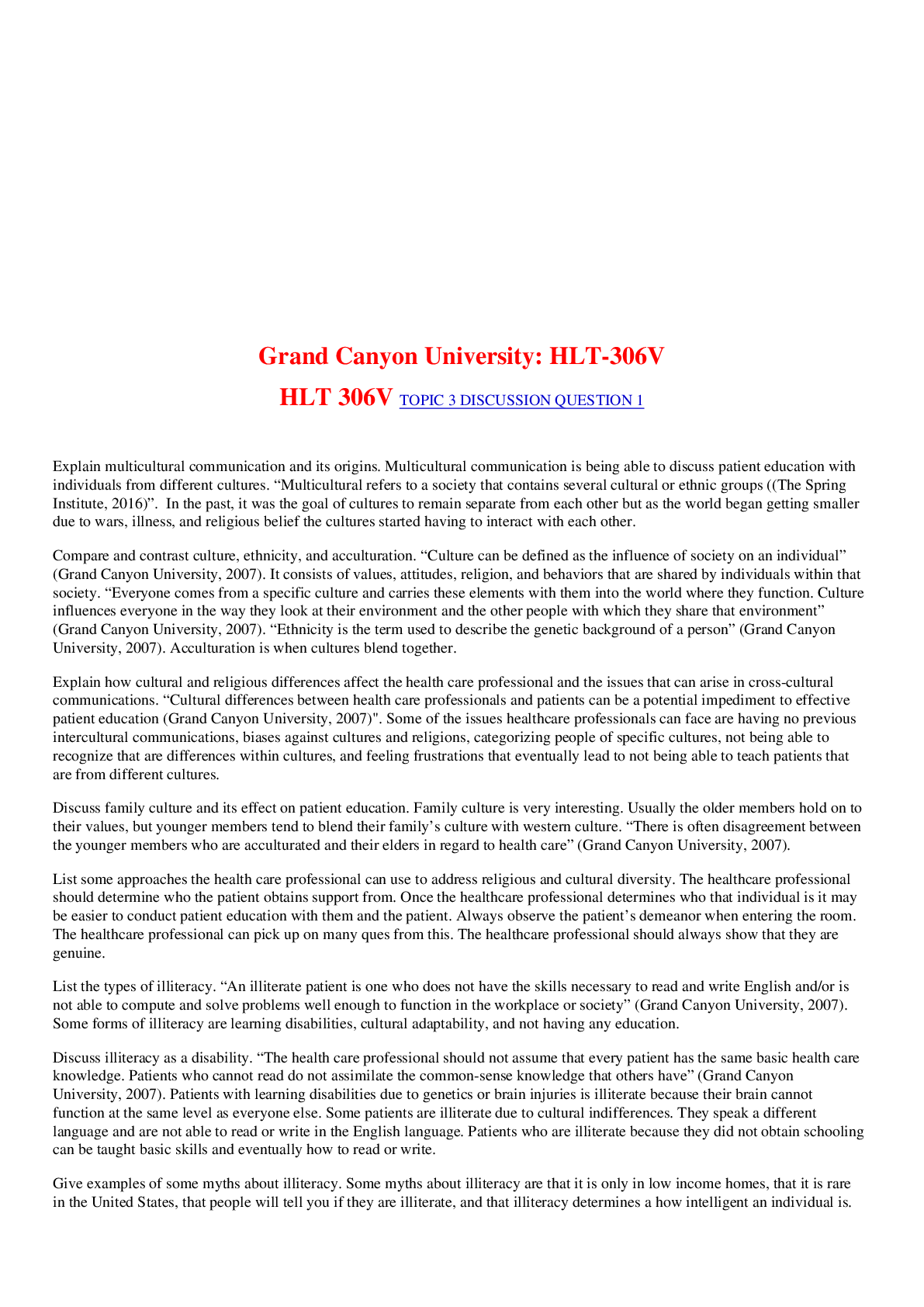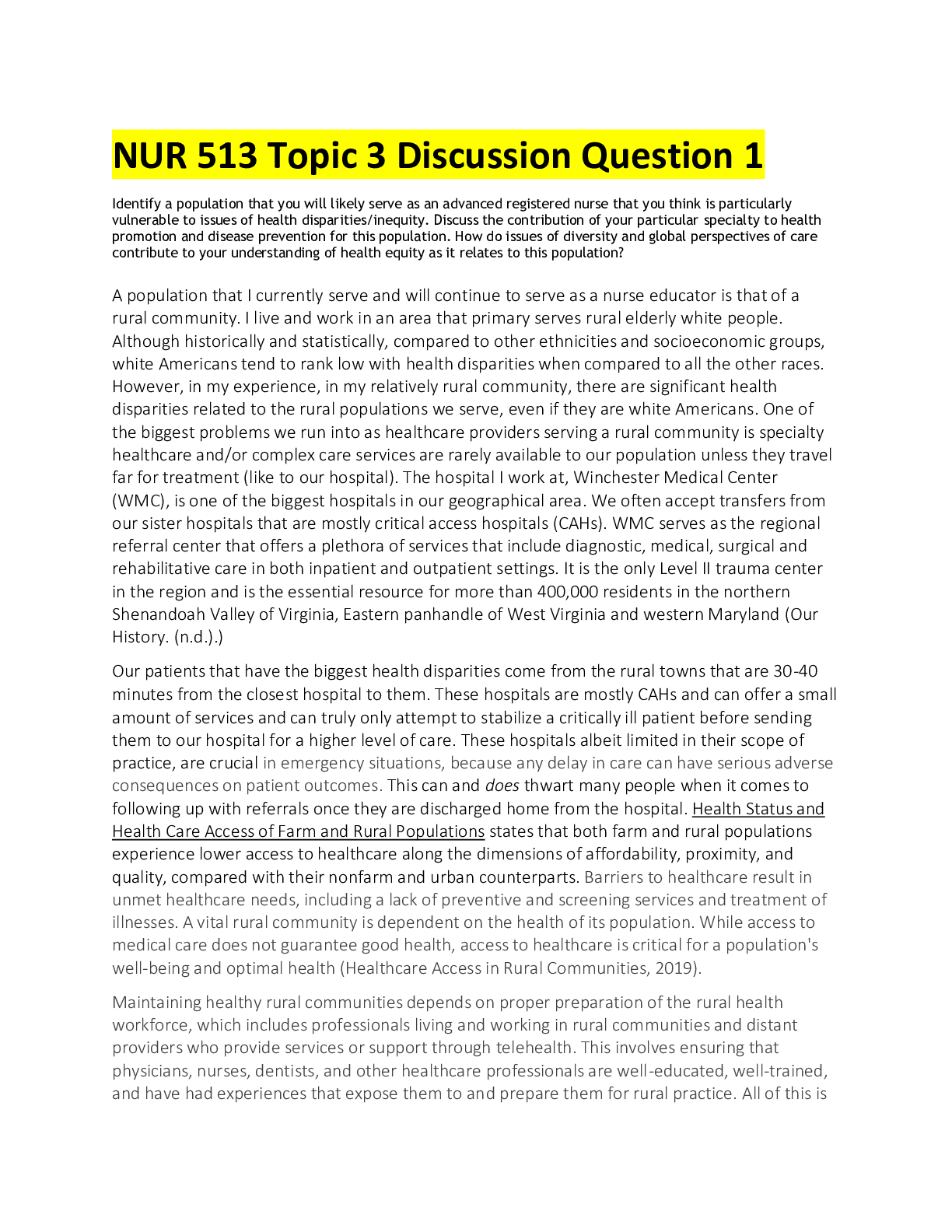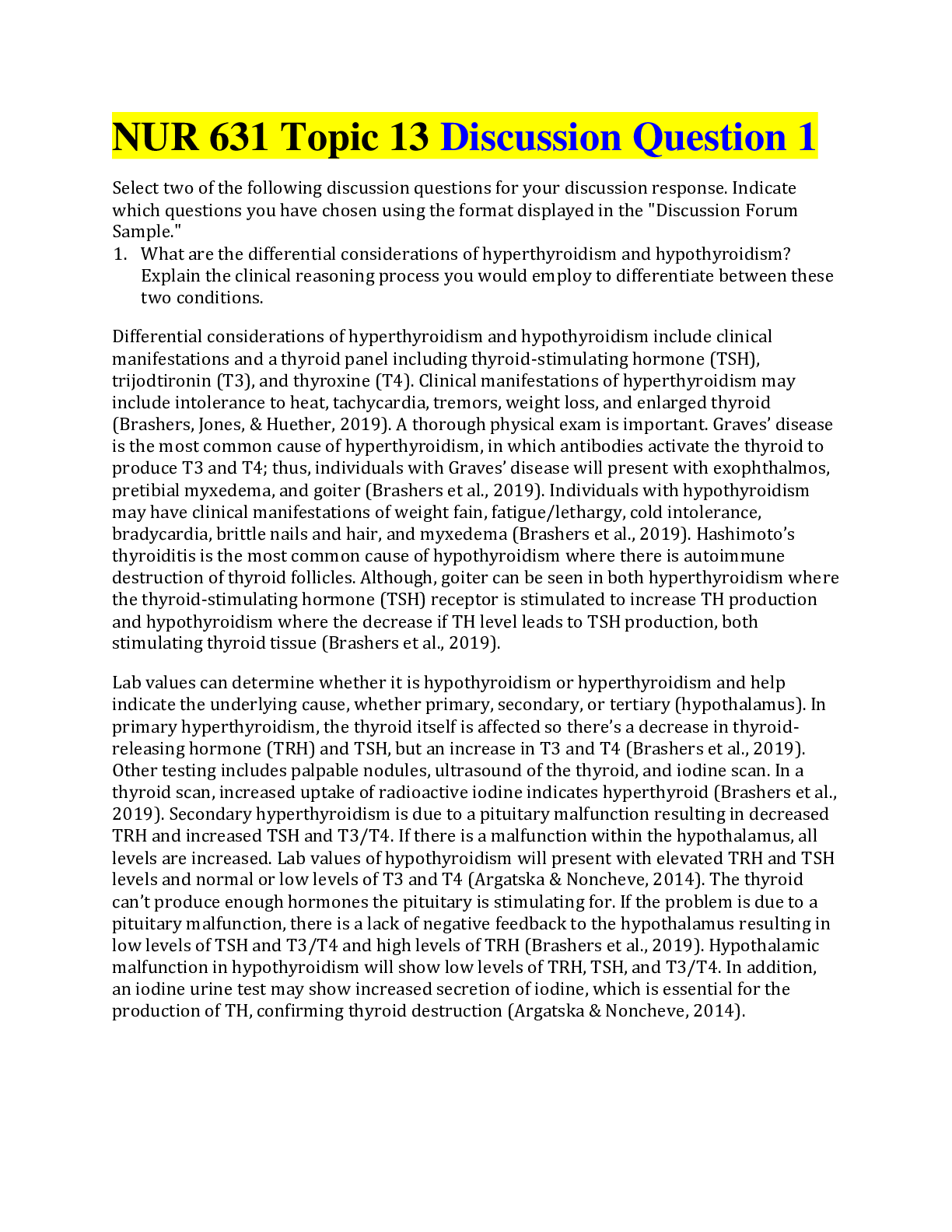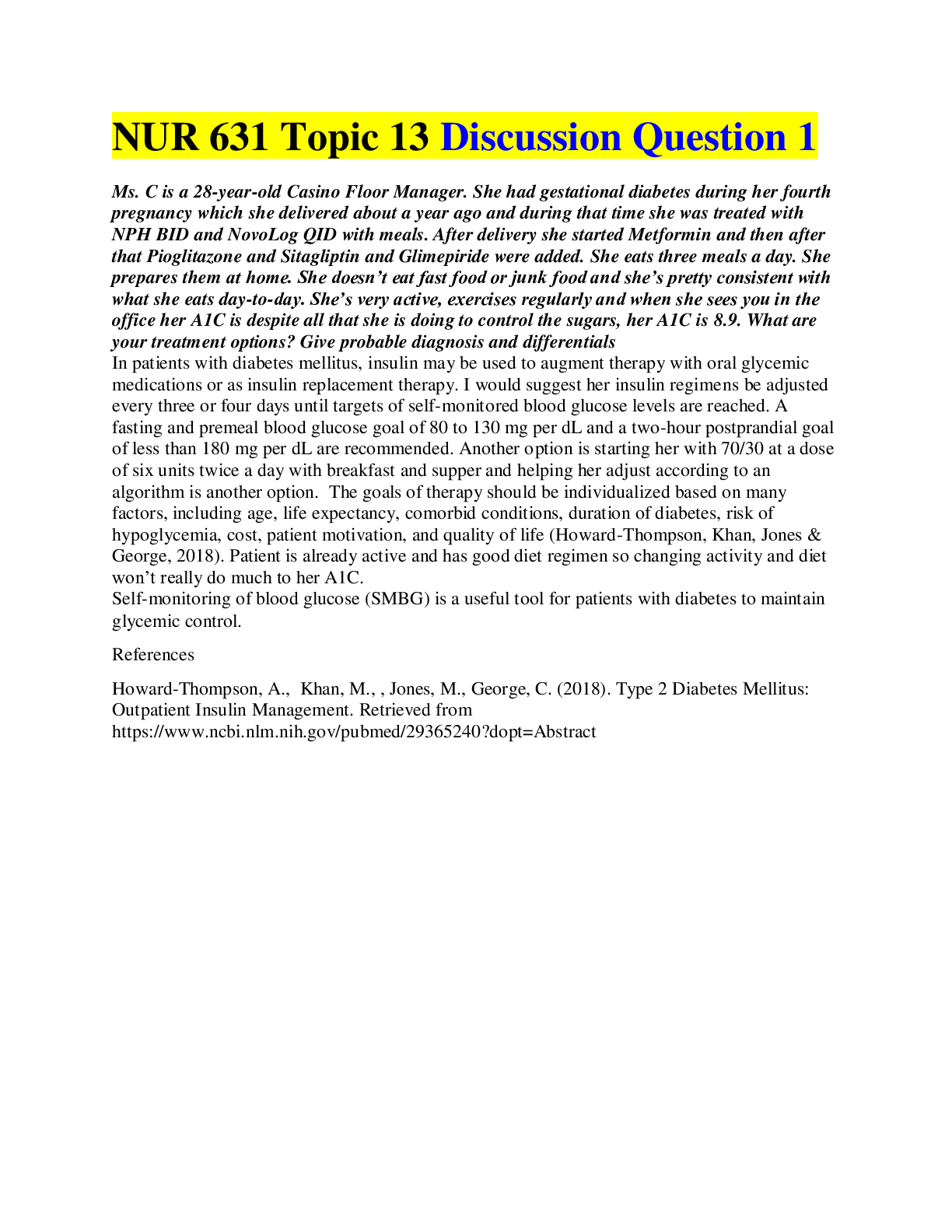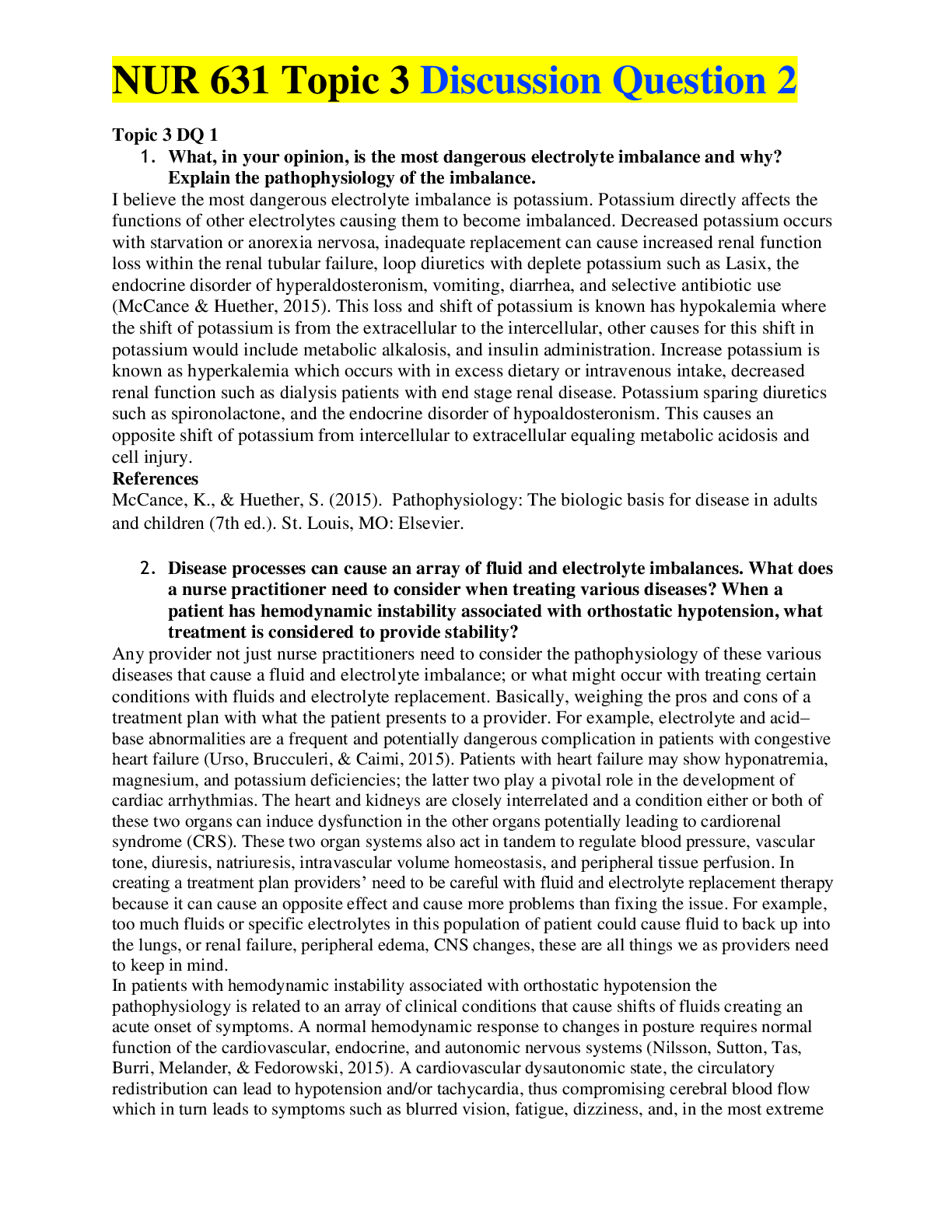Philosophy > DISCUSSION POST > PHIL-447N Week 3 Discussion Question 1 – Credibility - Discussion Graded An A (All)
PHIL-447N Week 3 Discussion Question 1 – Credibility - Discussion Graded An A
Document Content and Description Below
When I think of the term expert, I think of someone who has learned everything there is to know about something. This person has many years of experience in a certain field of work. They combine their... knowledge and experience to be proficient and skillful in a certain area, and they can teach someone what they know to help that person to become knowledgeable too. How important are facts in the process of forming an opinion? Explain what you believe to be the purpose or function of facts in making a judgment. Facts are very important in the process of forming an opinion because we put those facts together to get a better understanding of what we think about something. We use our first impression of something , combined with our common sense and skepticism, and ask ourselves questions to see if we believe something is true or not, and we come conclusions to what we believe about something we see or hear. In order to helps us form an opinion, we have to gather information, understand the other person's perspective, and use our critical thinking skills to determine if something or someone is trustworthy by evaluating our sources (Facione & Gittens, 2016). I think that the purpose of having facts is to provide us with more information and get a better idea to picture the scenario and determine what we believe is true. How would you evaluate Dr. Facione's claim "The SPLC is an expert on hate in America" (p. 124). Does the SPLC fit your definition of "expert"? I think that the claim that the SPLC is an expert on Hate in America is a reasonable description of the SPLC because the SPLC keeps track of all the hate groups and works to expose them. They have identified more than 2000 hate groups. The SPLC makes documentaries, books, and teaches about the different hate groups (Facione & Gittens, 2016). The SPLC is a civil rights group that advocates for human rights against hate groups. They used social media to provide the community with information. They are known for weakening the power of the KKK. Their goal to fight discrimination, promote acceptance, and obtain justification through the U. S. court system (Influence Watch, 2020). Knowing this, I believe that the SPLC is an expert in their area of knowledge about hate groups. How did you respond to the self-assessment question? Since doing further research, have you re- thought the way in which you assess credibility and reliability? What is the importance of factoring the recency of a reference or opinion (i.e., how old is it?) into an assessment of credibility and reliability? The self-assessment question made me stop and think about the things that I believe in think about my values. As I done more research, I pay more attention to the details of where I find the source. We can use the CRAAP test to figure out if a source is reliable or not. The C stands for Current. The R stands for Relevance. A stands for Accuracy. The other A stands for Authority, and this is information about the knowledge of the author. The P stands for point of view to understand what the author is trying to say (NJC, 2020). To assess credibility of something we have to ask ourselves is the source trustworthy. Is there any bias about the subject or issue? Is the person looking out for your best interests or their own? Are they getting paid to represent someone or to advertise for them? Is the person making the claim mentally stable? Is the person saying something to stop from being tortured? A trustworthy source is current, knowledgeable on subject, honest, unbiased, and doesn't have any conflicts of interest. A credible person is someone who took the time to learn about a specific case Facione & Gittens, 2016). It's important to use an up to date source so that we get reliable information in case something changed about the subject, and we are updated with the most recent information. Facione, P. A., & Gittens, C. A. (2016). Think critically (3rd ed.). Pearson. Influence Watch. (2020). Southern poverty law center (SPLC). Retrieved from: https://www.influencewatch.org/non-profit/southern-poverty-law-center-splc/ MJC. (2020, February 12). Evaluate your sources using the CRAAP test. Retrieved from: https://libguides.mjc.edu/CRAAP [Show More]
Last updated: 11 months ago
Preview 1 out of 3 pages
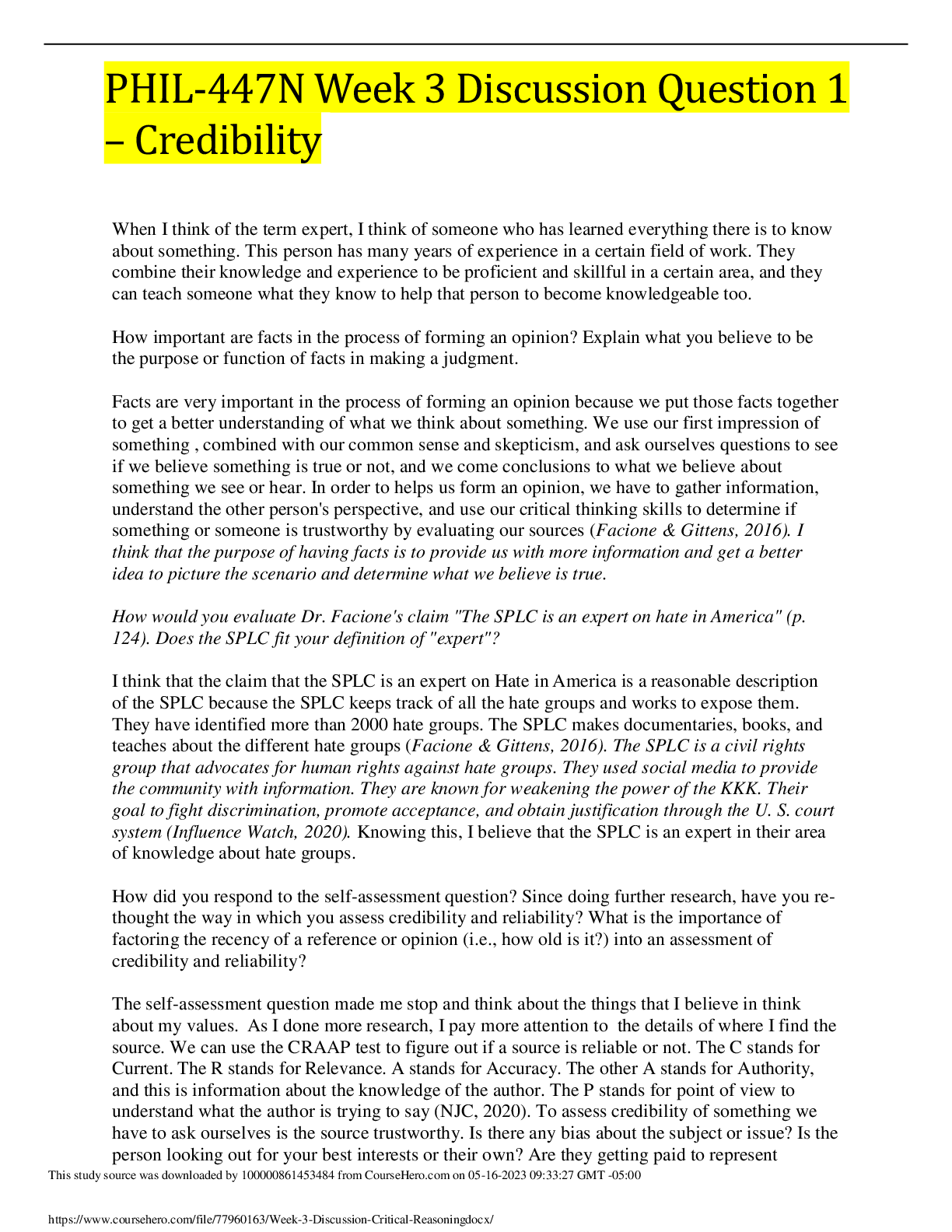
Reviews( 0 )
Document information
Connected school, study & course
About the document
Uploaded On
May 16, 2023
Number of pages
3
Written in
Additional information
This document has been written for:
Uploaded
May 16, 2023
Downloads
0
Views
82


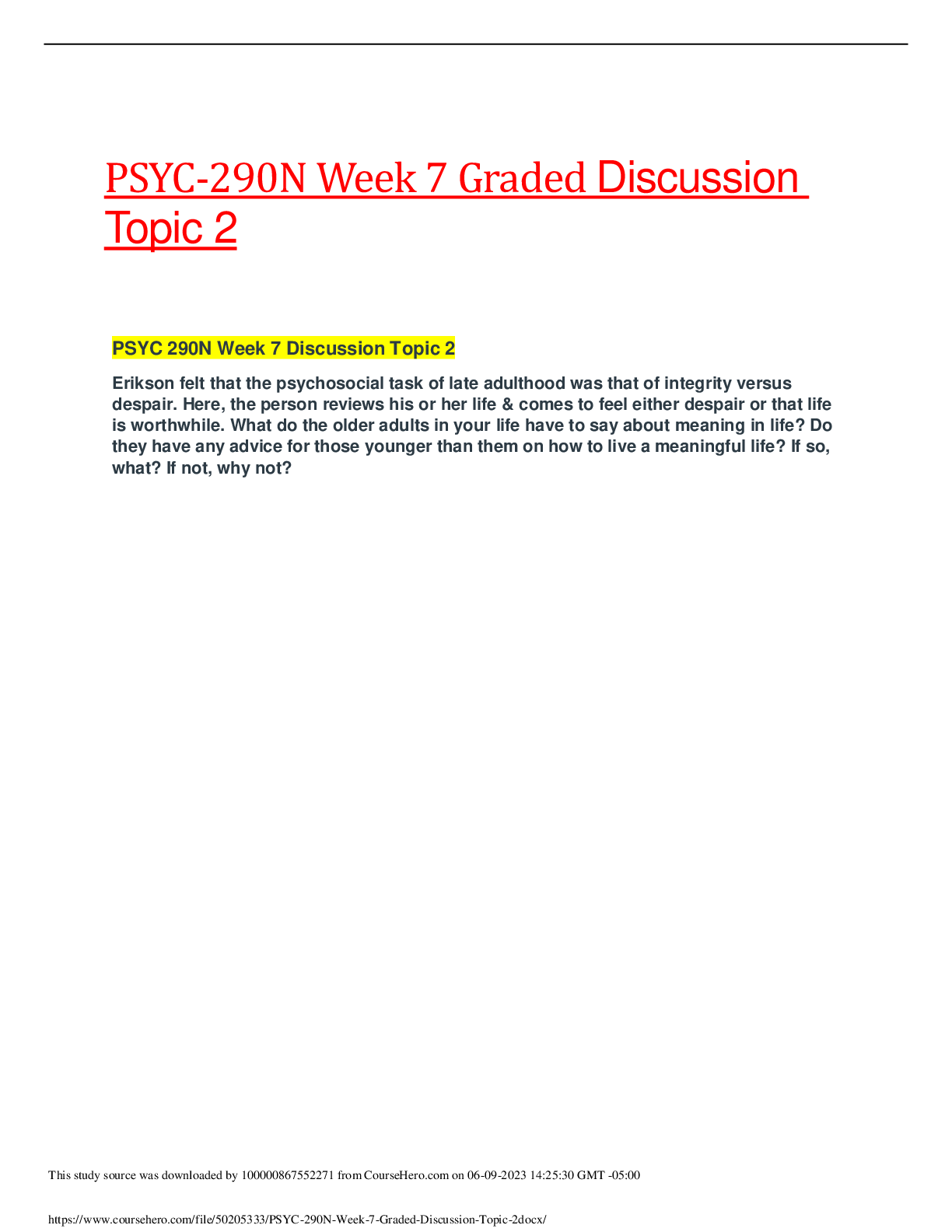
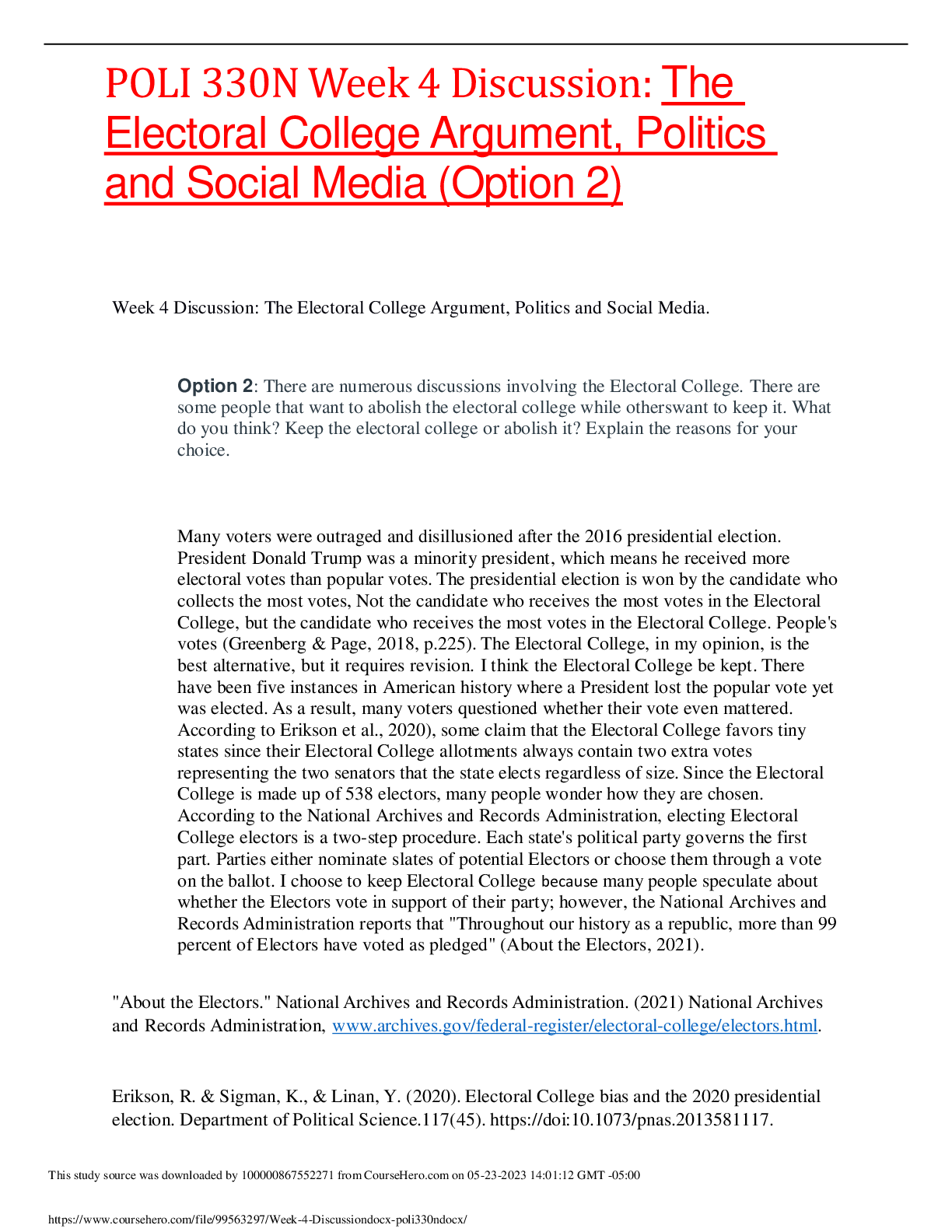
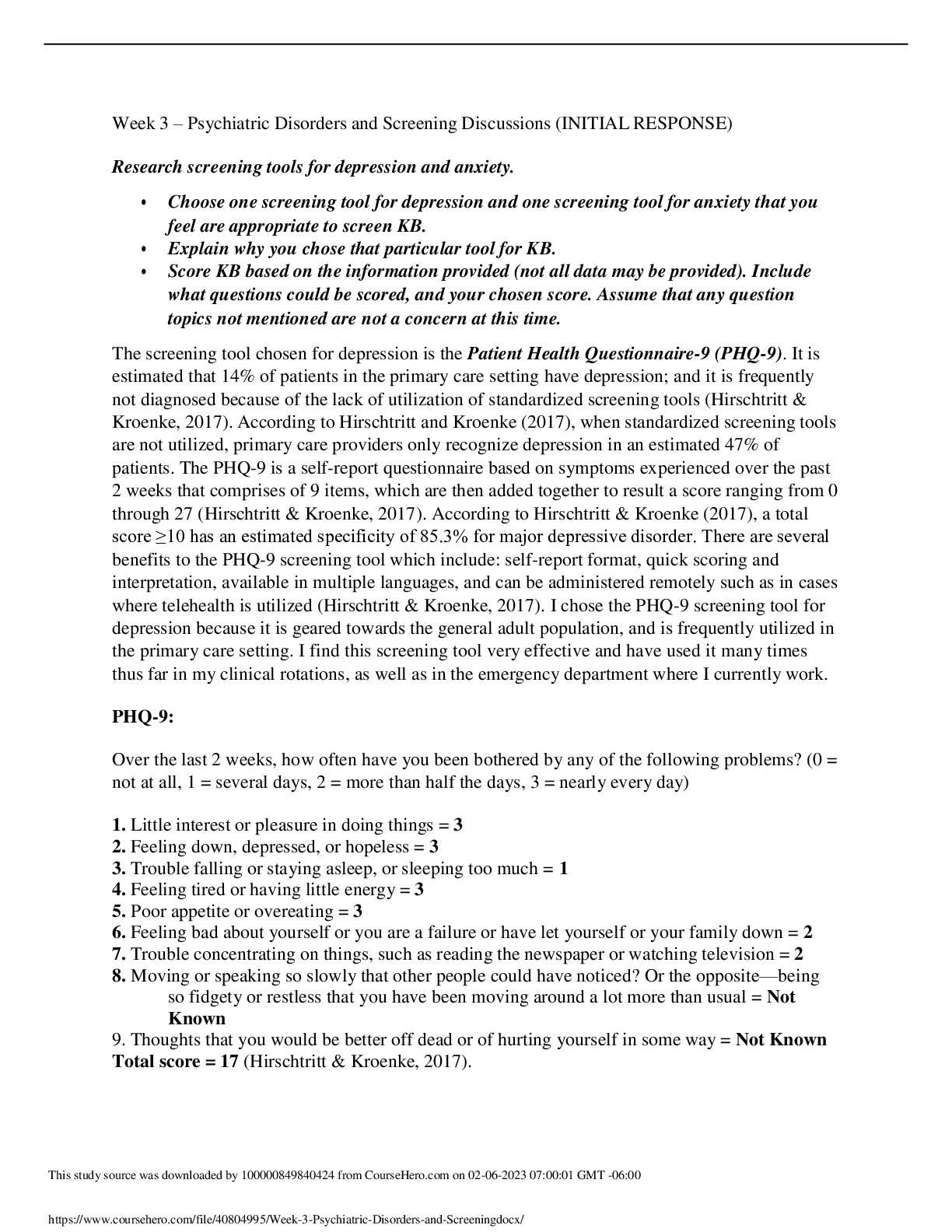
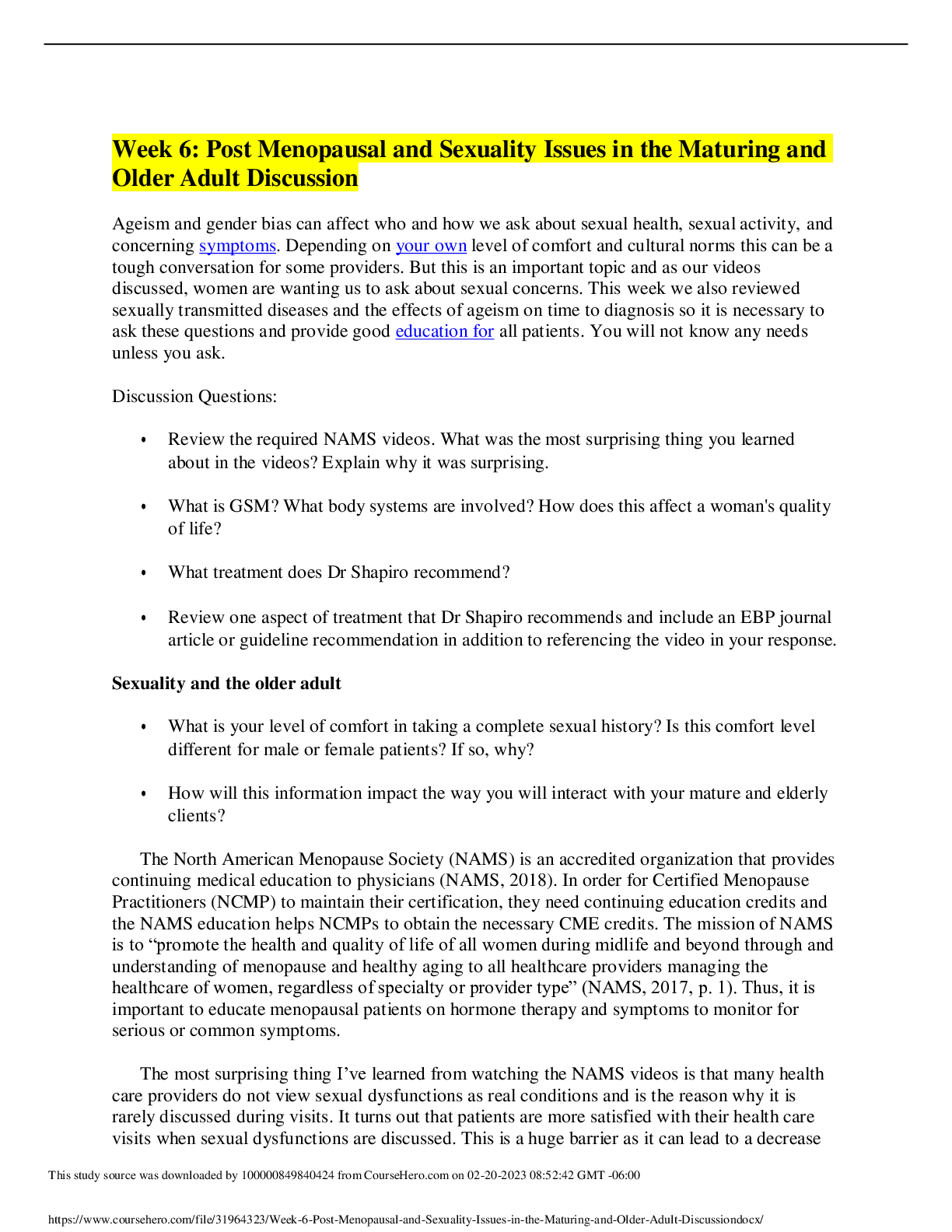

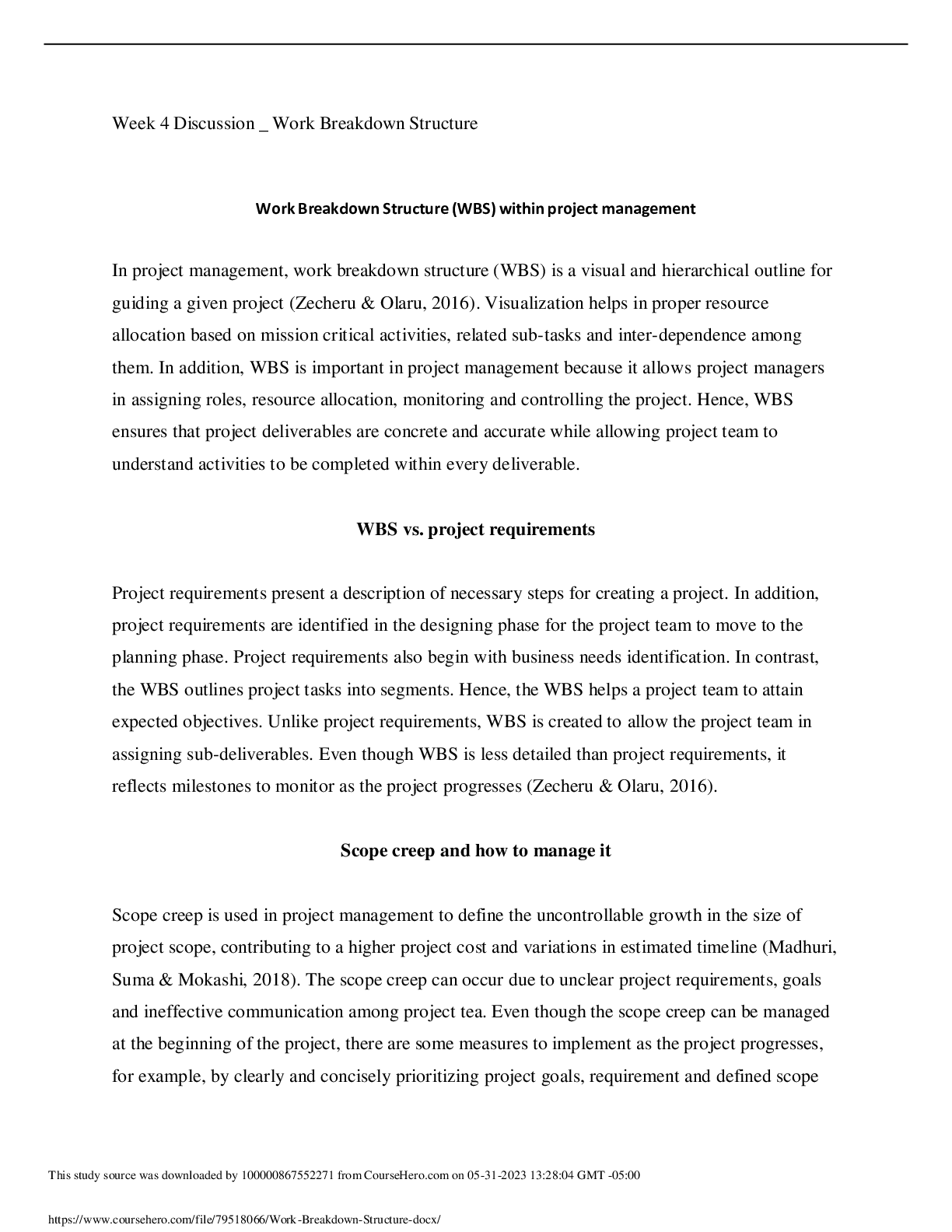
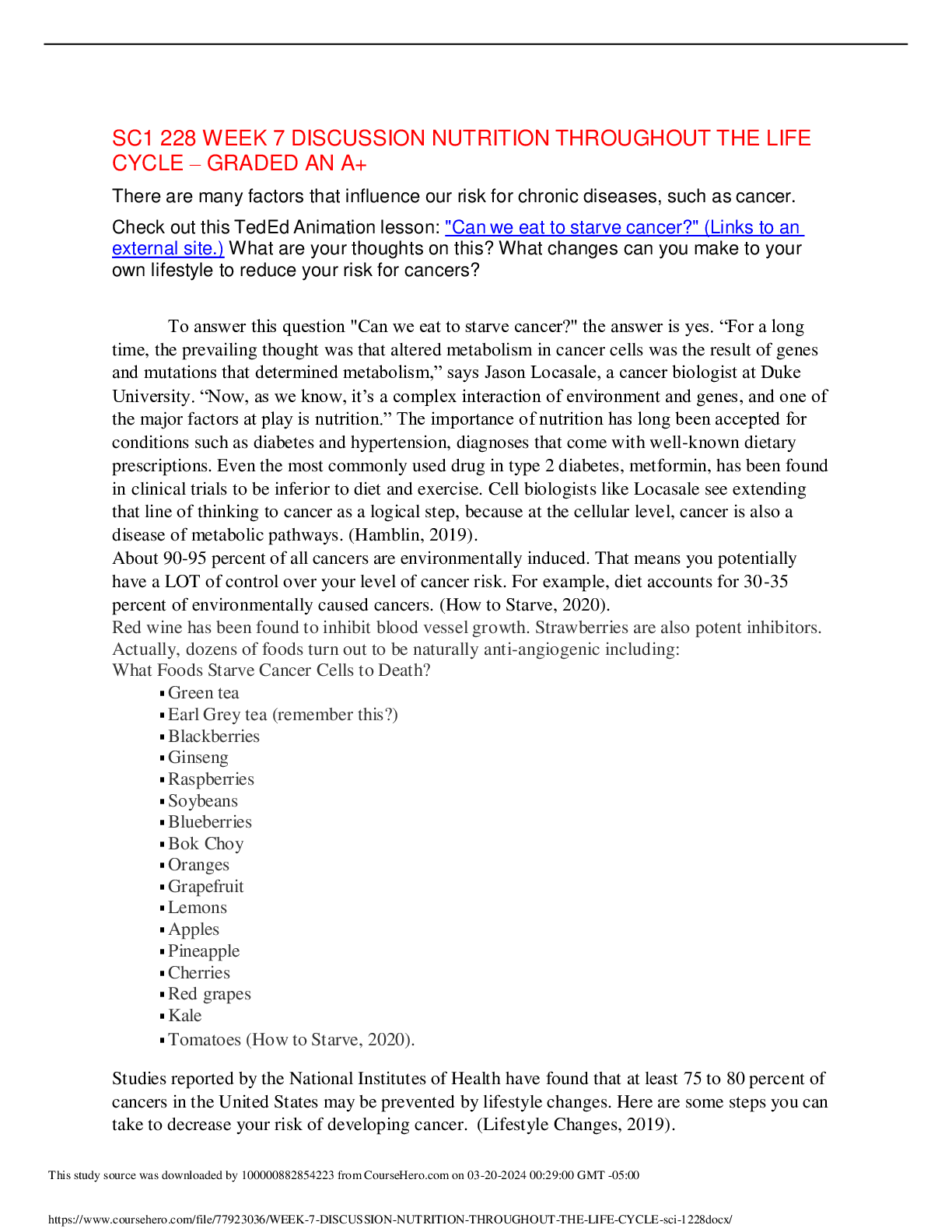
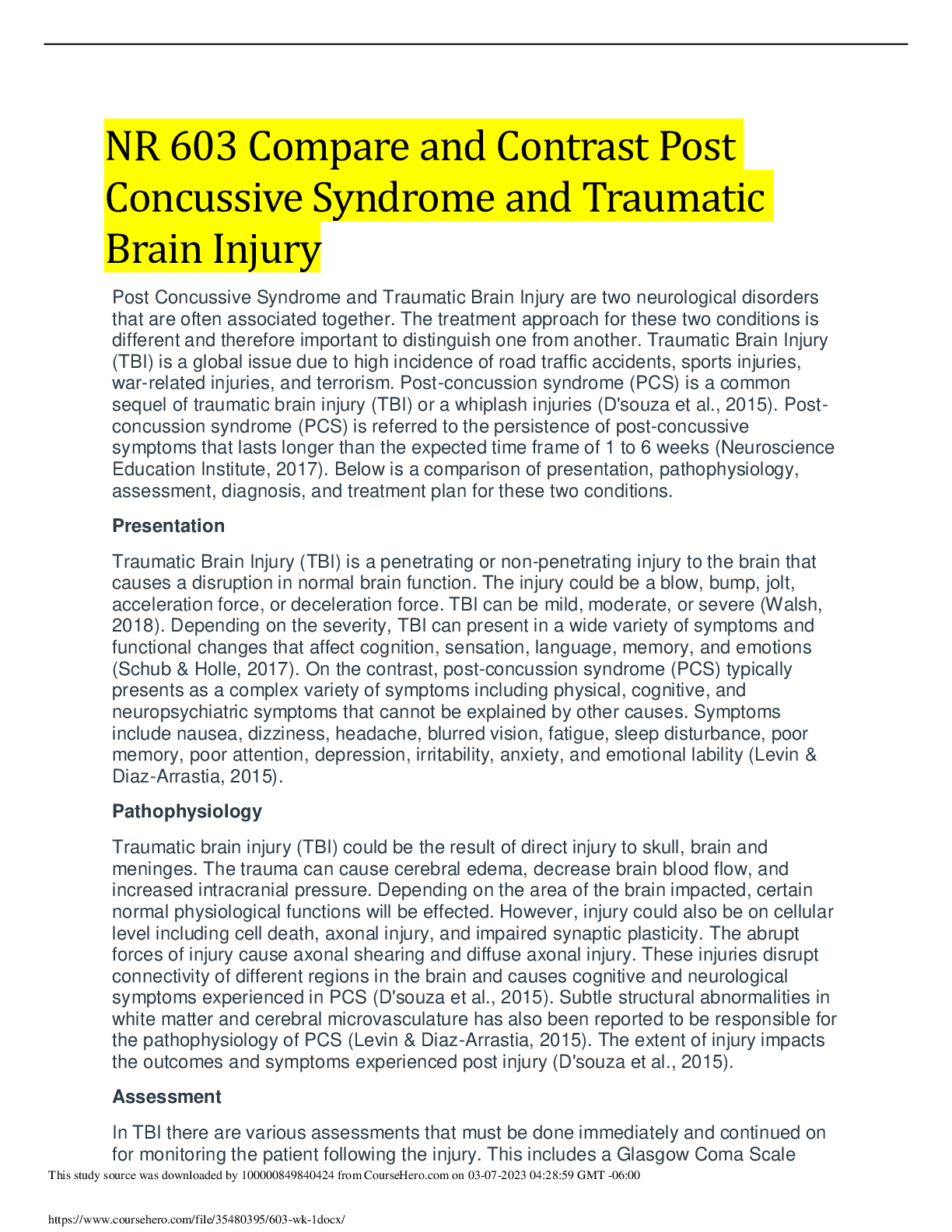
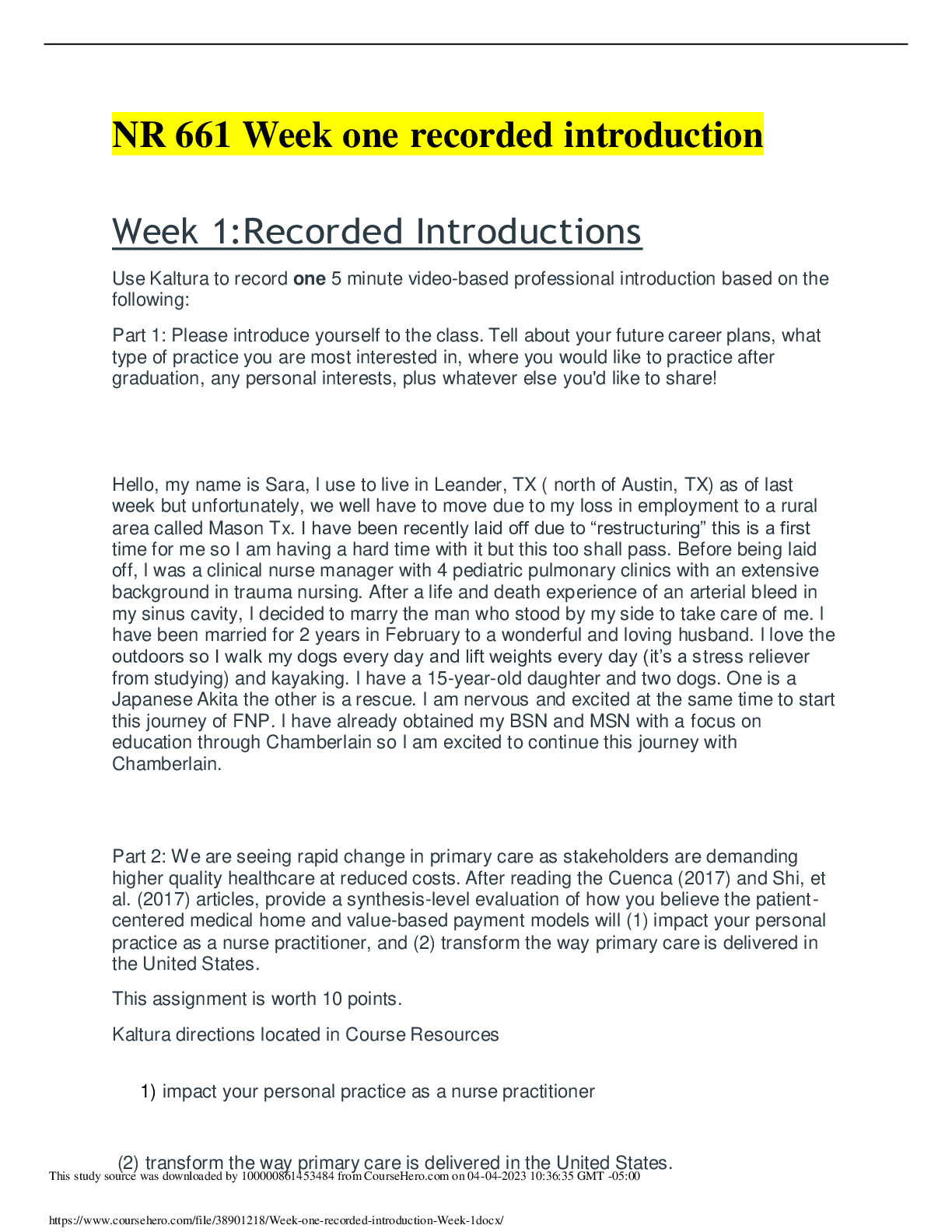
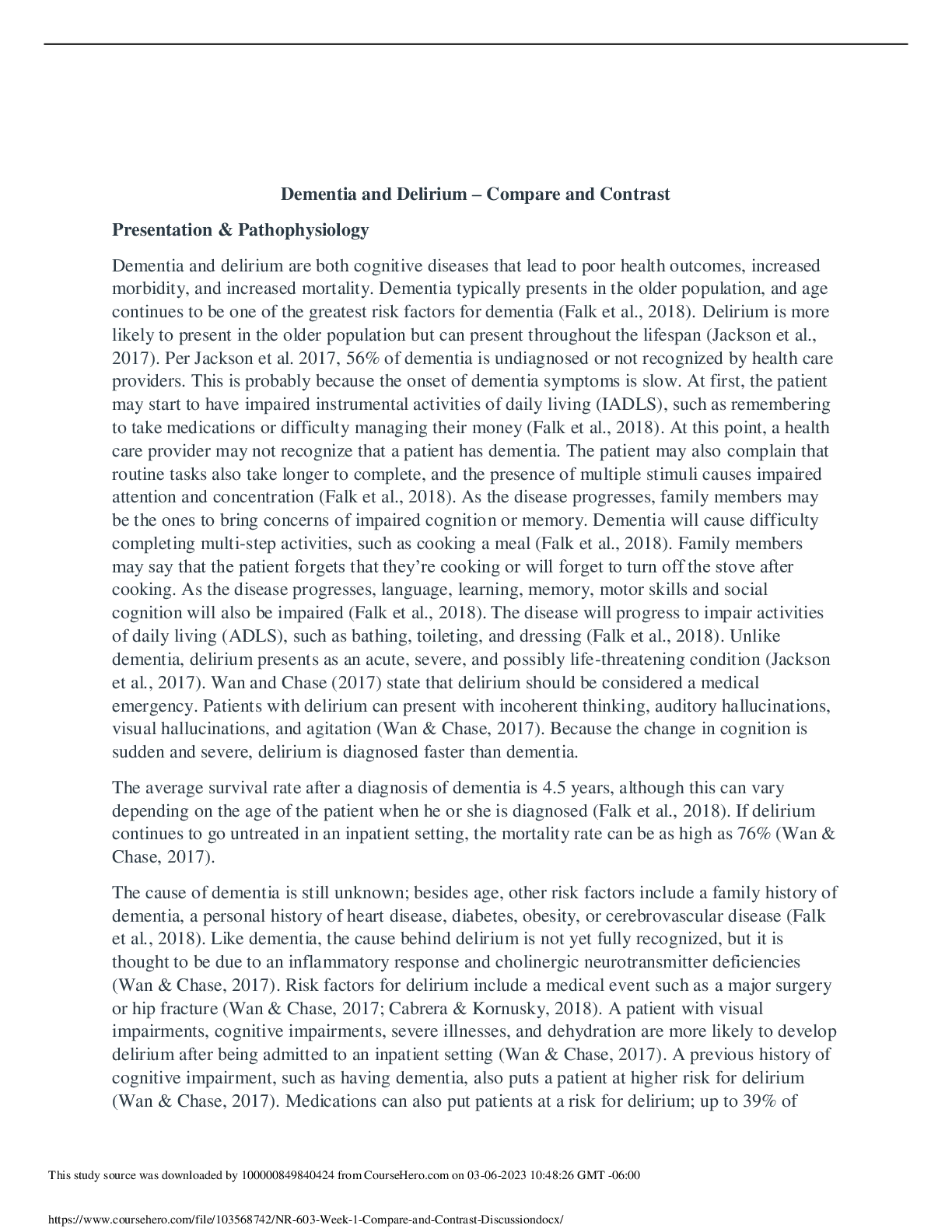
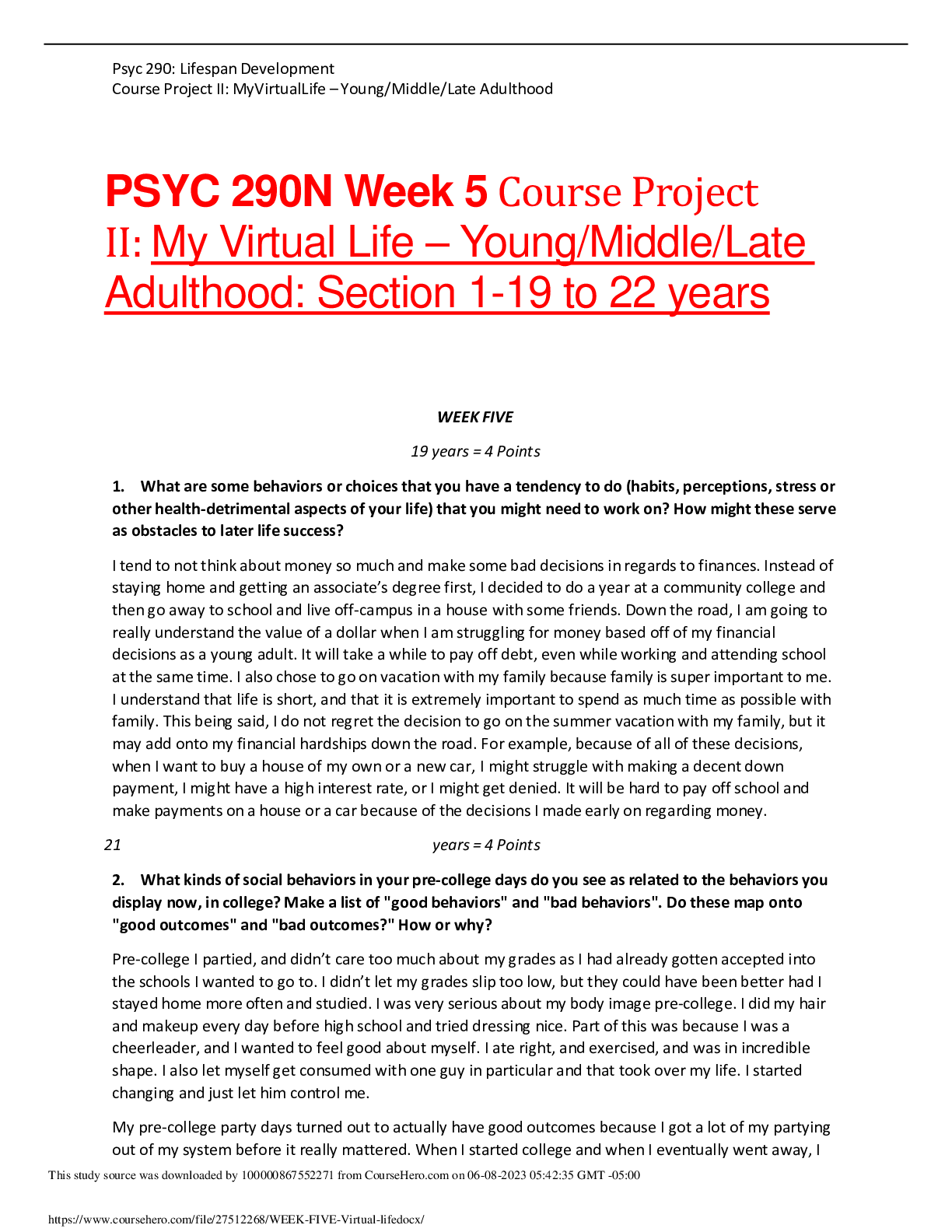
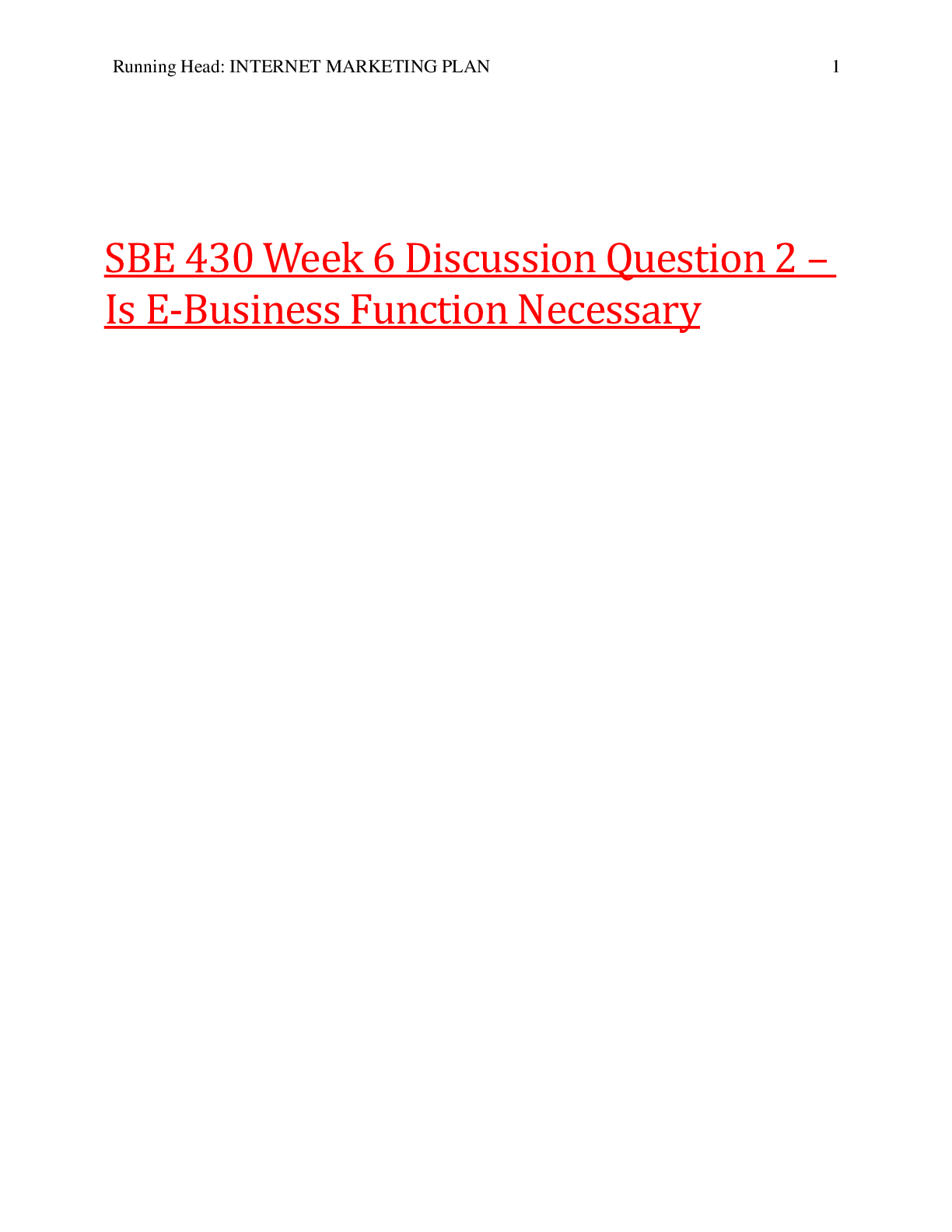
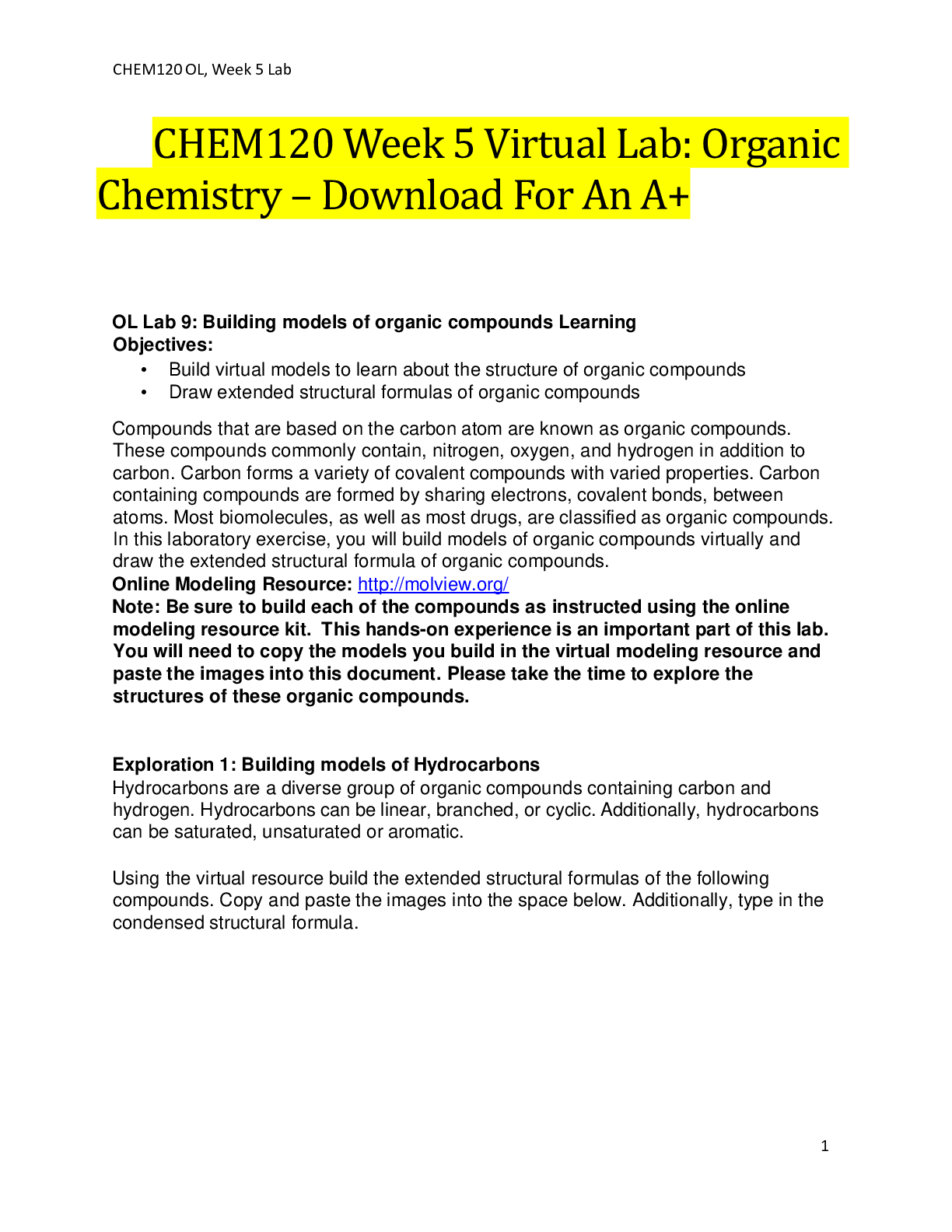
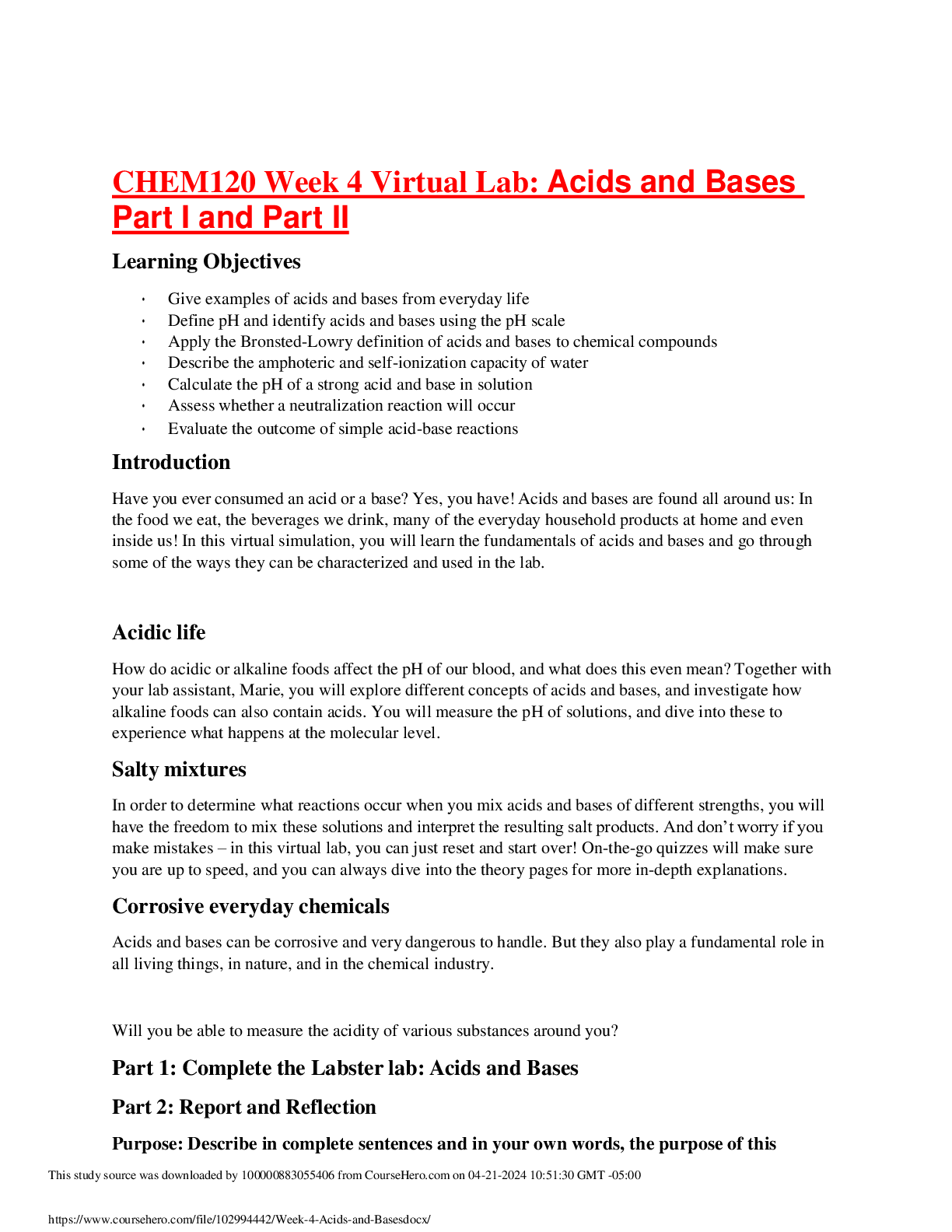
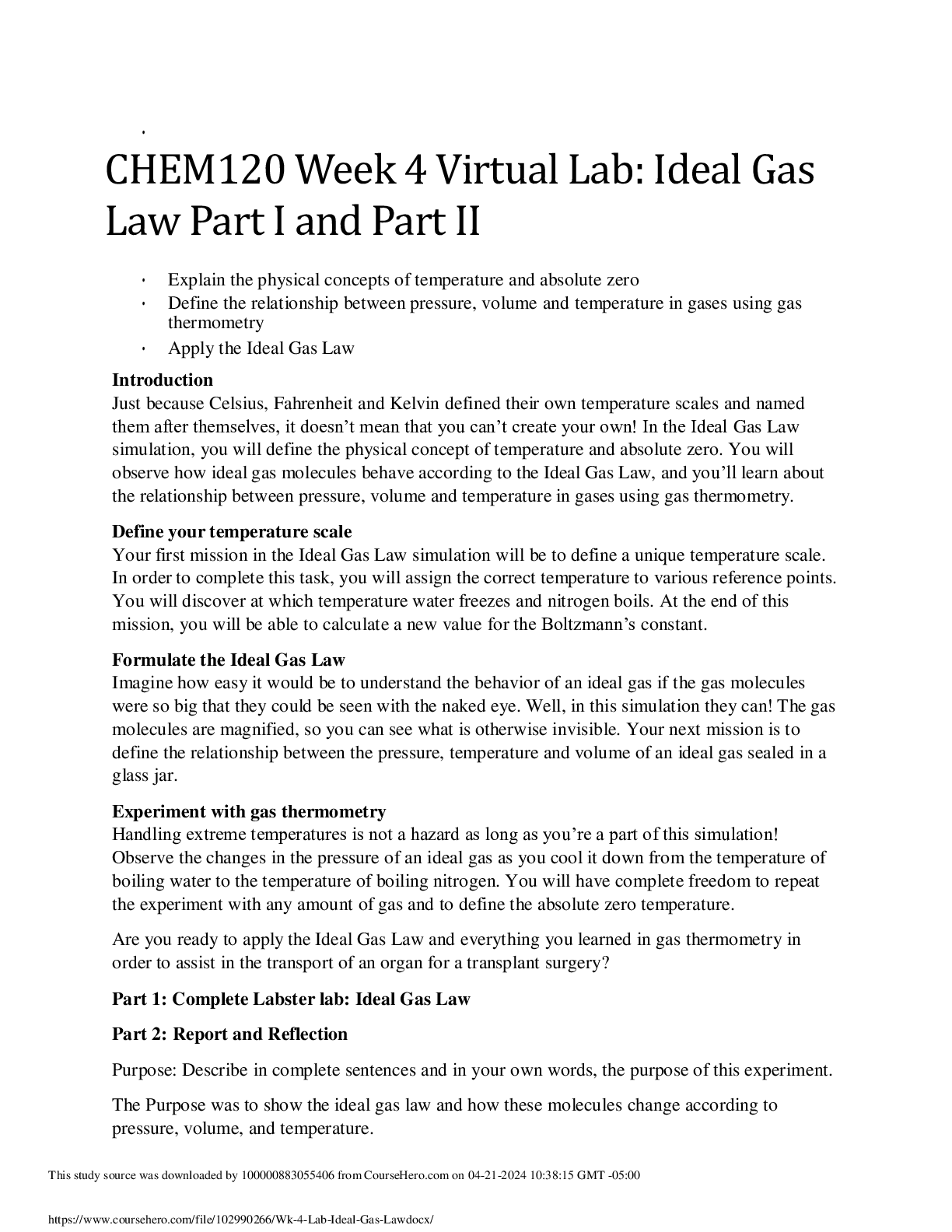
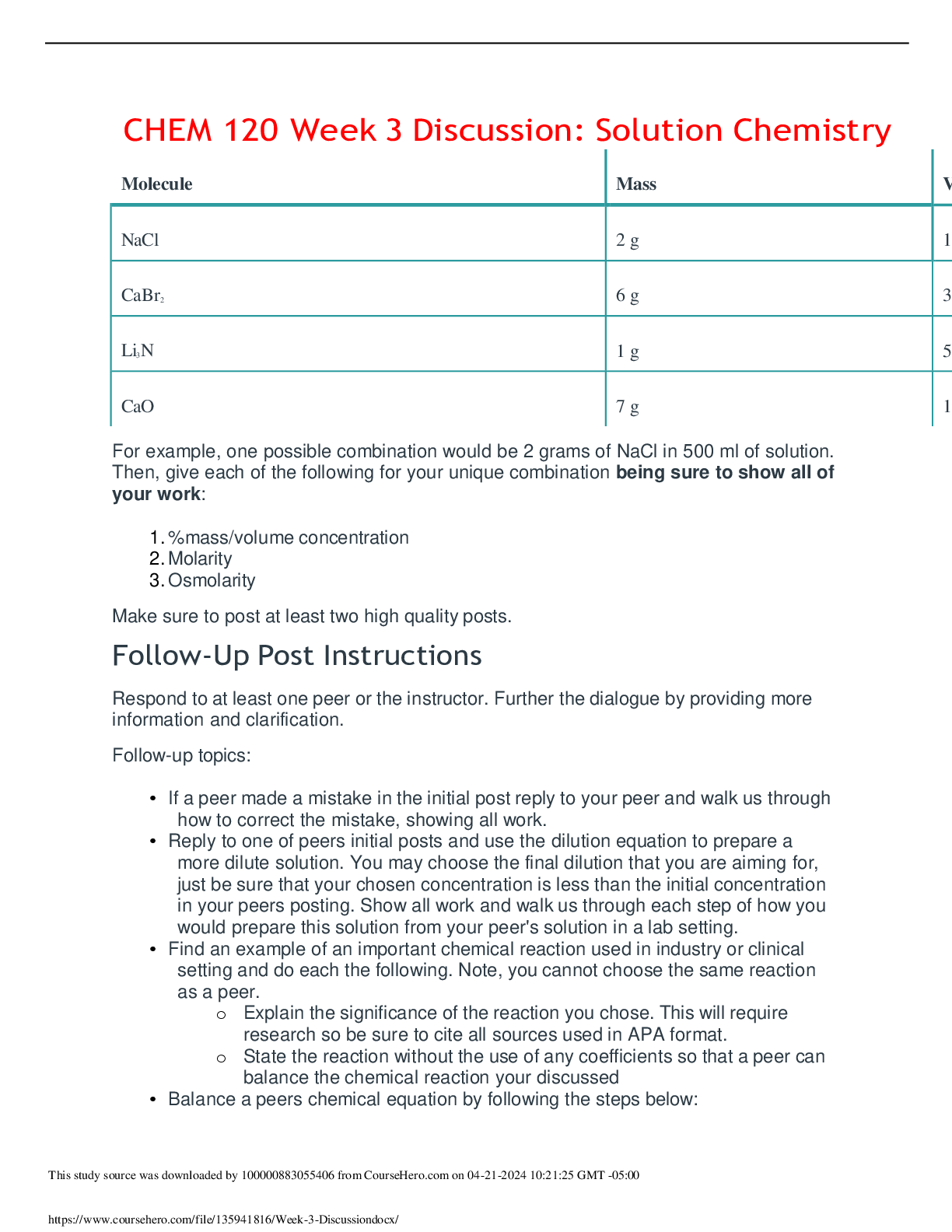
.png)
